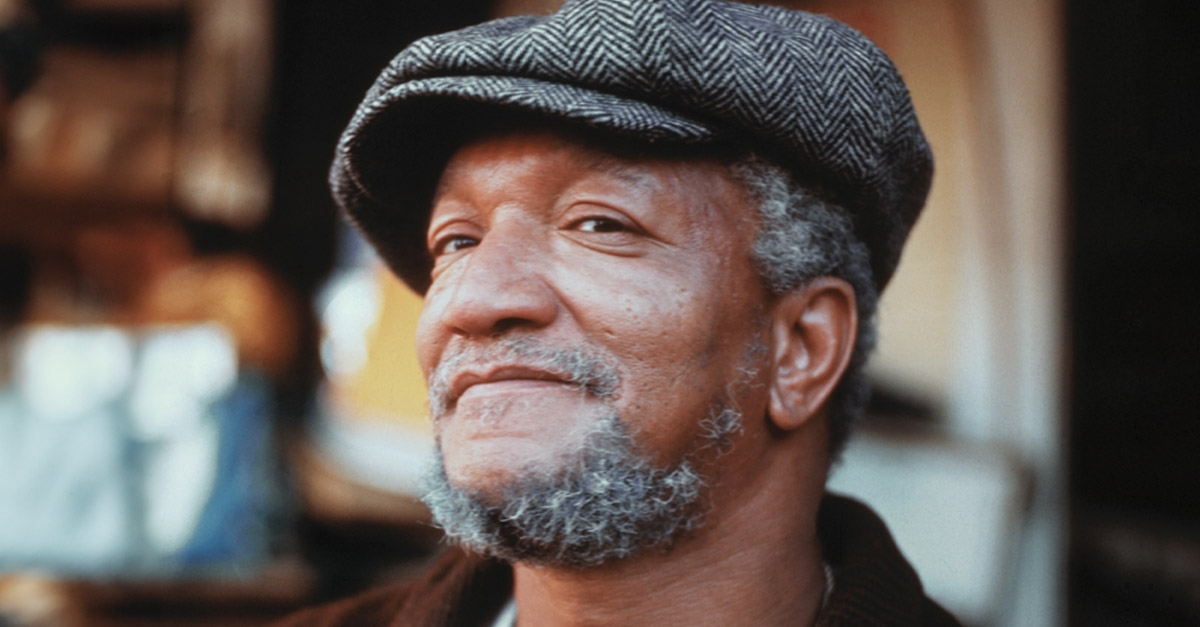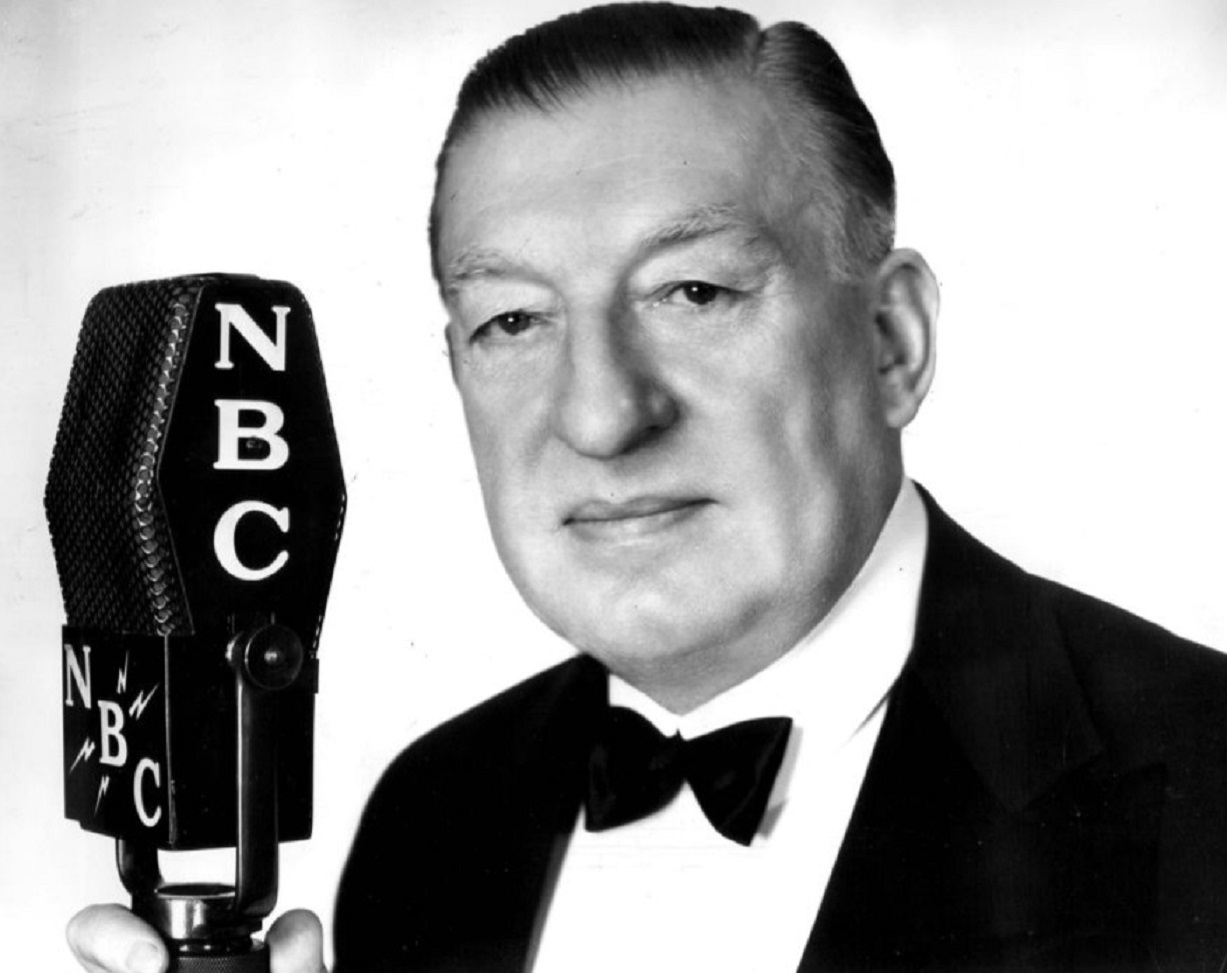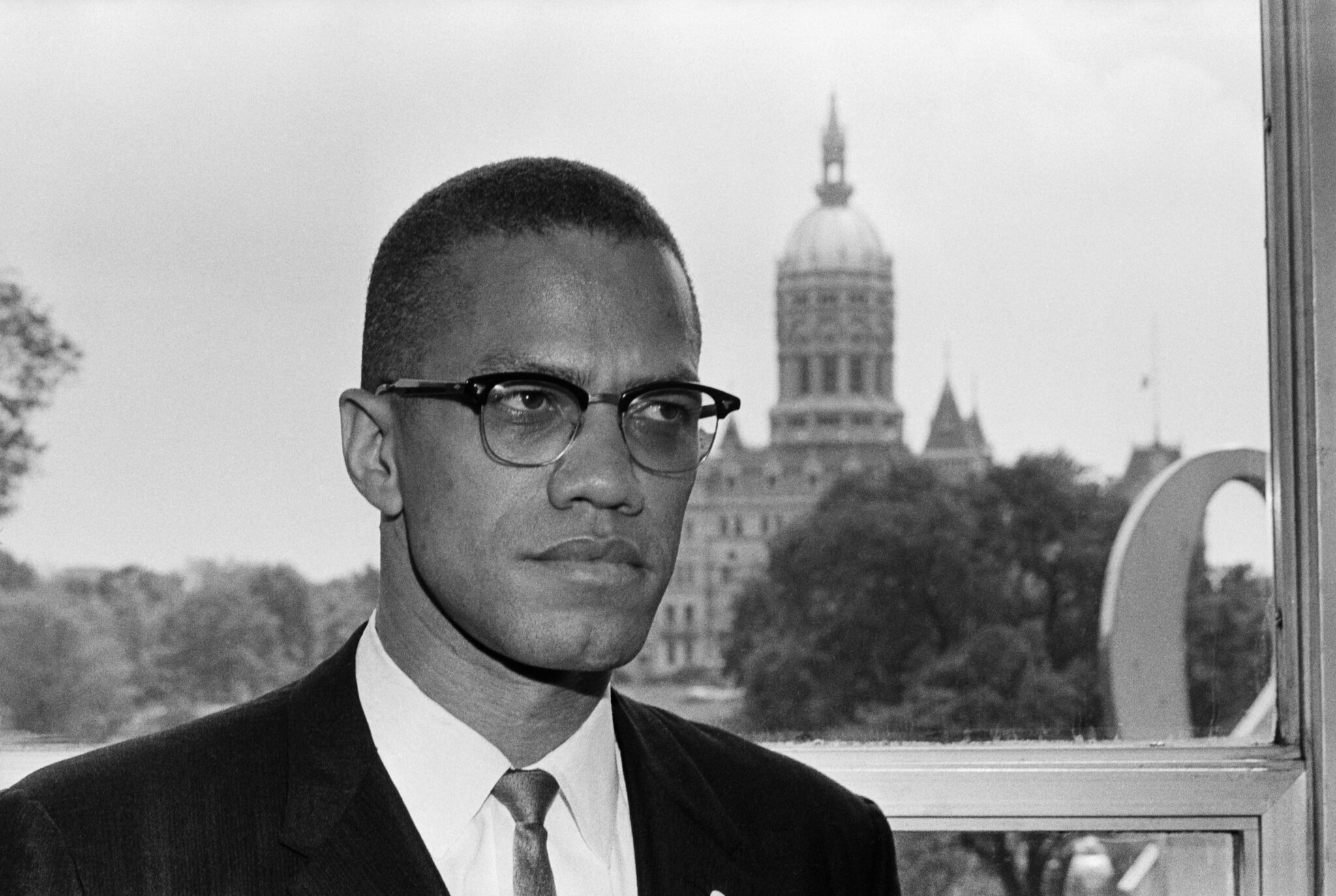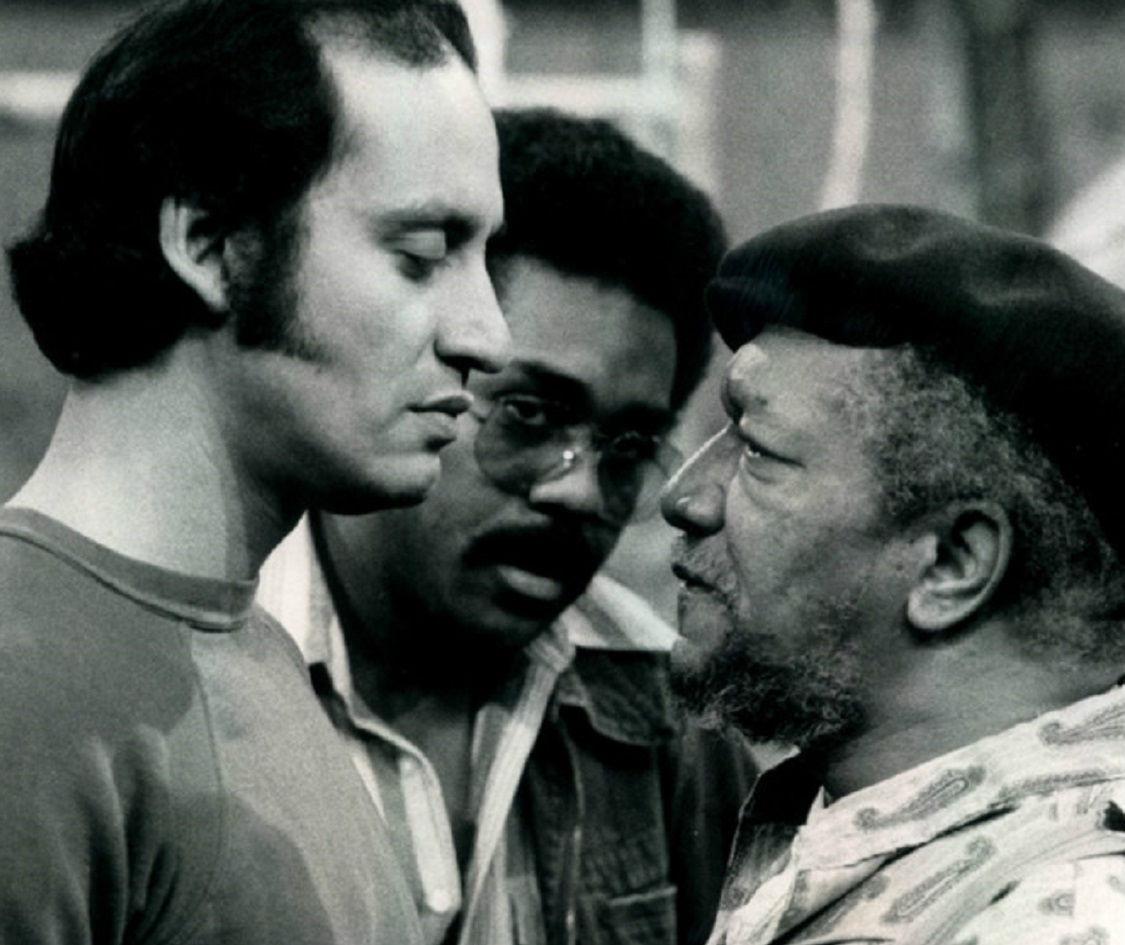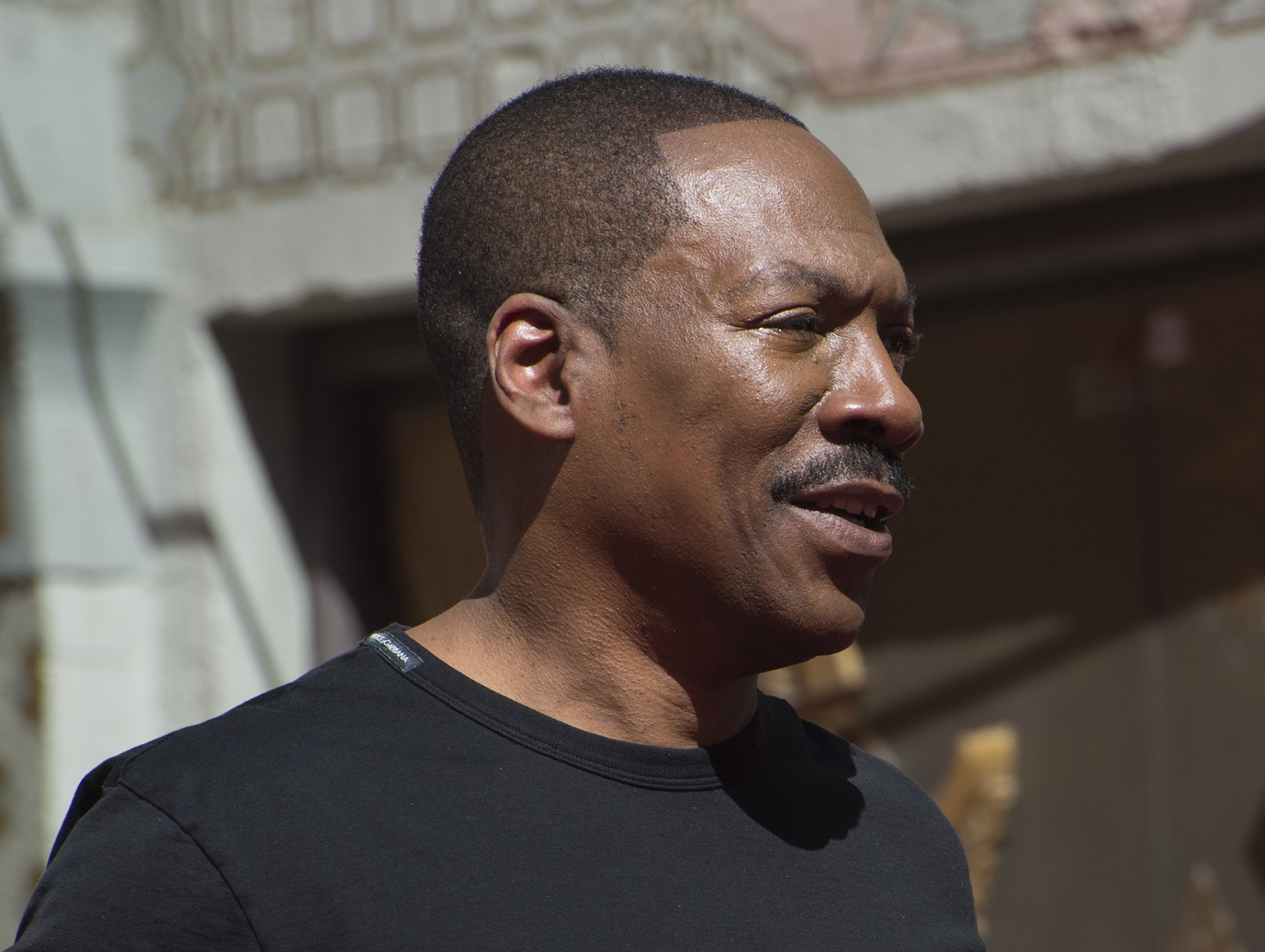1. He Has A Little-Known Ancestry
On December 9, 1922 John Elroy Sanford was born into very humble surroundings in St. Louis Missouri. His mother, Mary Hughes, was a half-Seminole Indian who gave to her son a reddish bronze tinge to his skin and hair, a complexion that would definitely color the child’s decision to change his name to Redd Foxx in later years. His father, however, gave him a more disturbing gift.
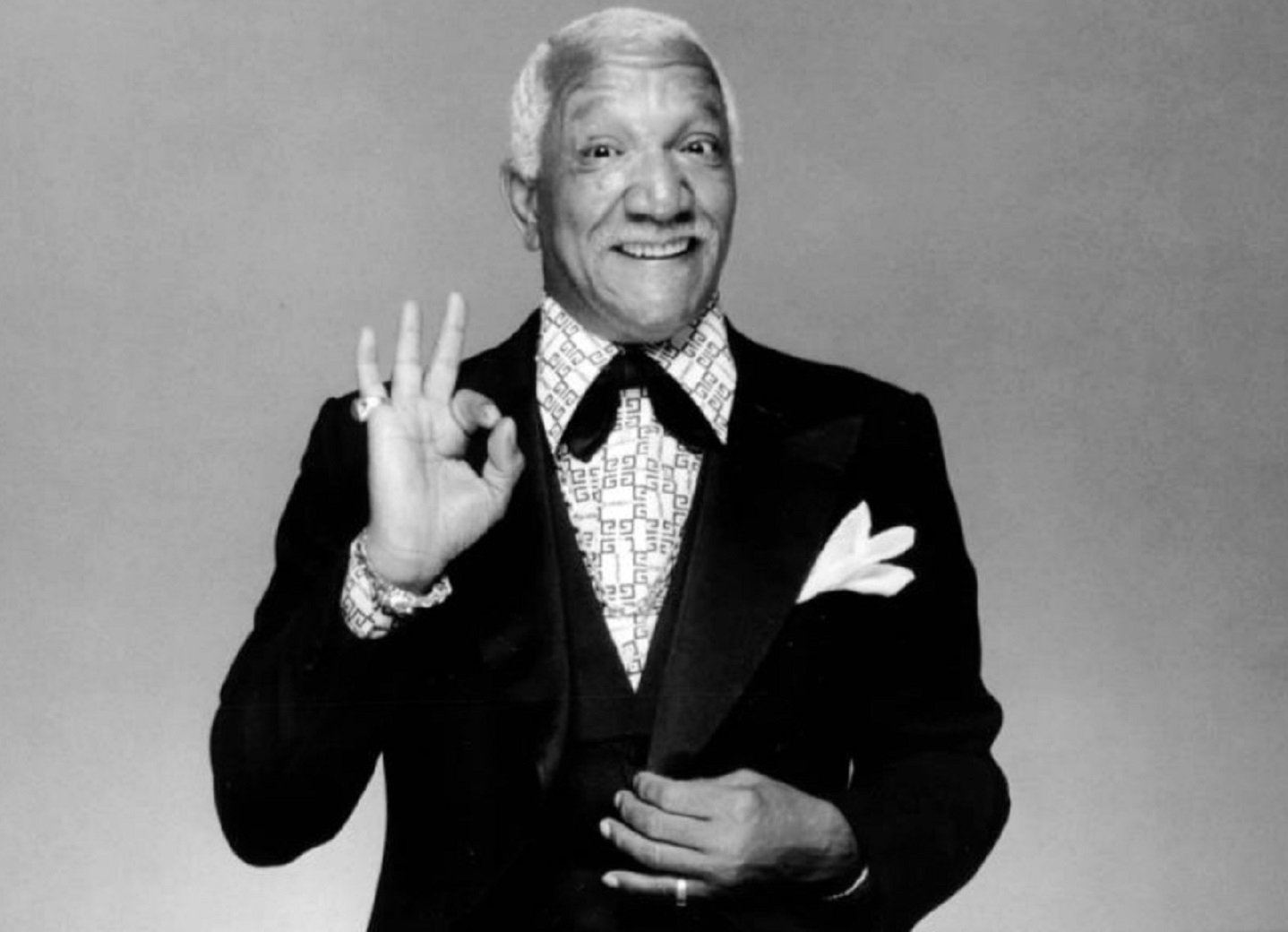 ABC Television, Wikimedia Commons
ABC Television, Wikimedia Commons
2. He Had A Rough Start
When Sanford was only four years old, his father Fred deserted the family forever. Suddenly desperate for work, his mother moved to Chicago, leaving him and his older brother in the care of their grandmother and, occasionally, their minister. It did not go well.
Rebellious and clearly missing the steadying hand of a father figure, Foxx was purportedly expelled from school on his first day after throwing a book at his teacher. His days in St. Louis were numbered.
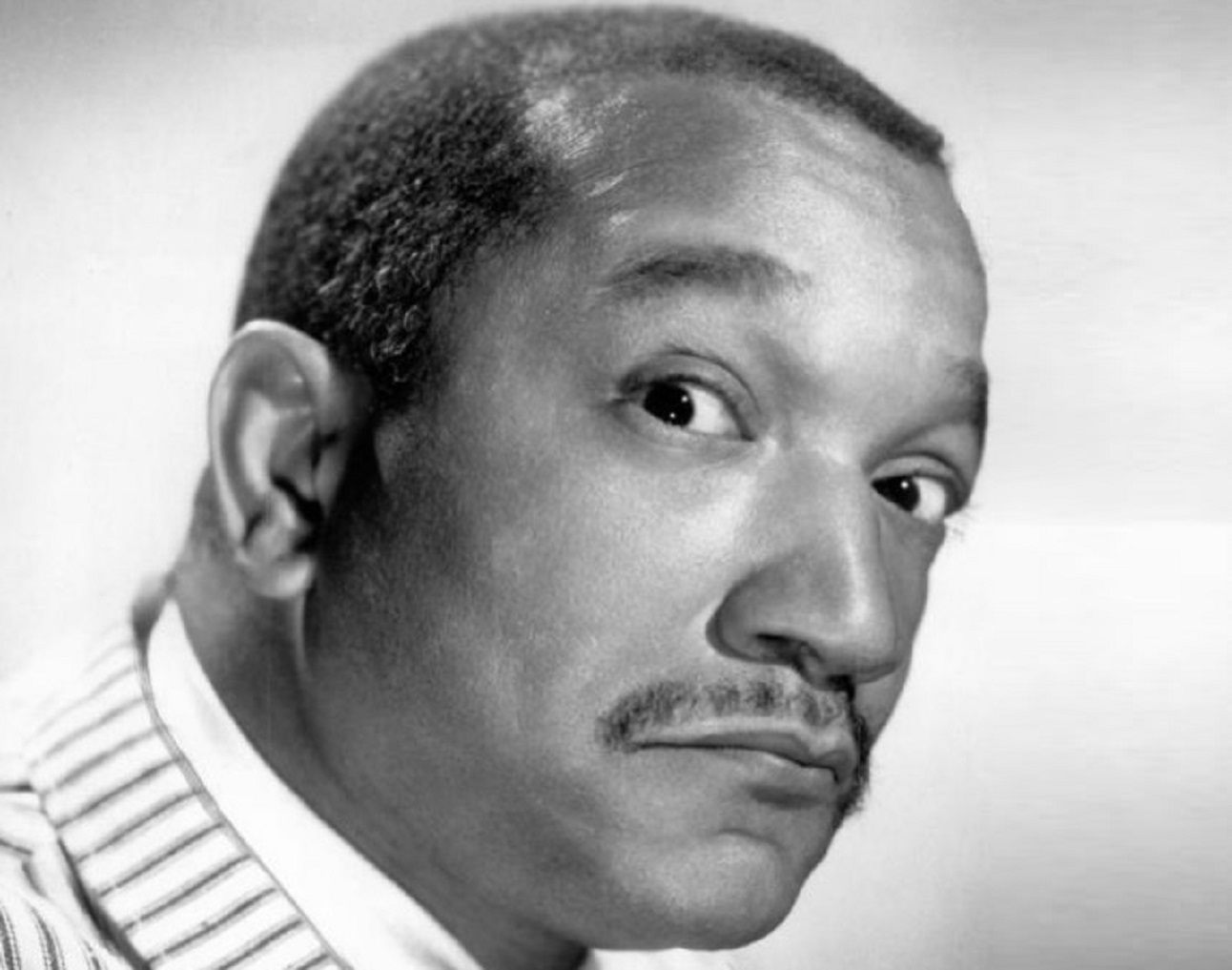 John E. Reed, Wikimedia Commons
John E. Reed, Wikimedia Commons
3. He Formed A Band And Hit The Rails
Foxx soon joined his mother in Chicago. There, with friends Lamont Ousley and Steve Trimel, he formed a Washtub Trio called The Bon-Bons. Broke but looking for better options, they jumped a train to New York. But their accommodations weren't exactly first class.
Foxx and his friends snuck into a car from a hatch on the top. It was only after the hatch clicked shut behind them that they realized they were stuck in a car full of onions.
As Foxx put it, "We cried from Chicago to Weehawken"—but they had made it to New York. Now they just had to survive.
 NBC Television, Wikimedia Commons
NBC Television, Wikimedia Commons
4. He Landed A Break In Harlem
Landing in Harlem, the trio managed to get booked onto the Major Bowes Amateur Hour, a radio talent show broadcast out of New York. The Bon-Bons took second prize and were awarded a week’s booking in a New Jersey Nightclub.
It seemed like this trio might actually make it. But behind the scenes, things were already falling apart.
5. His Group Broke Up
Success for the Bon-Bons was extremely brief. Shortly after their night club stint in Jersey, discord in the band bubbled over and they broke up. Suddenly, John Sanford found himself on his own in Harlem. With his musical career in flames, he had to take a job as a dishwasher in Jimmy’s Chicken Shack.
There, he gained both a promising nickname and an important friend.
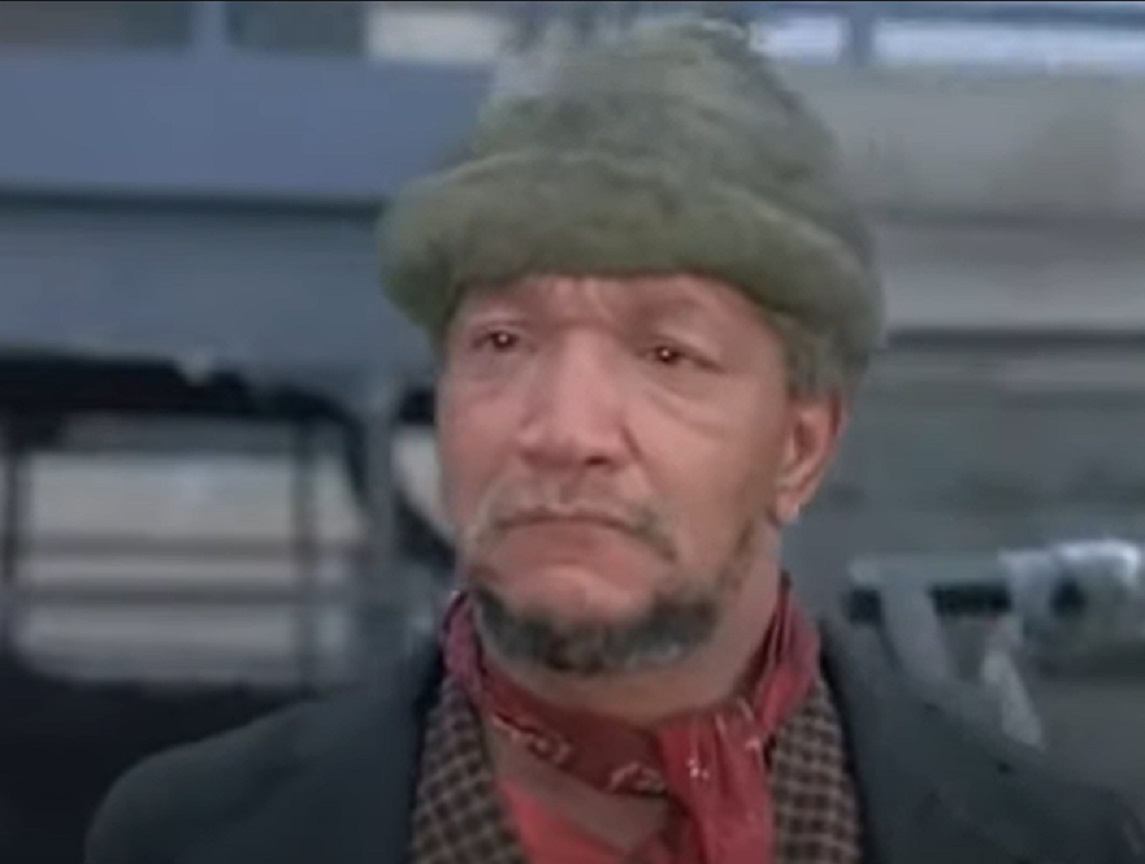 Formosa Productions, Cotton Comes to Harlem (1970)
Formosa Productions, Cotton Comes to Harlem (1970)
6. He Met A Future Leader
Working at Jimmy’s, Foxx befriended another dishwasher, a tall, skinny boy named Malcolm Little, who would later go by "Malcolm X". Both boys had reddish hair, and so Sanford was dubbed “Chicago Red” while Little became “Detroit Red”.
In Malcolm X’s biography, Sanford is fondly remembered as “...the funniest dishwasher on earth”! But he still needed to eat.
7. He Struggled To Make Ends Meet
Foxx may have been funny, even talented, but he was still a good ways off from being able to make a living as a comic. Washing dishes and the occasional sign-painting job helped to pay his rent, but there were times when it just wasn’t enough.
For a while, playing the occasional comedy club and open mic night alternated with brief jail sentences for such offenses as jacking a bottle of milk and sleeping in a hallway. But it could always get worse...
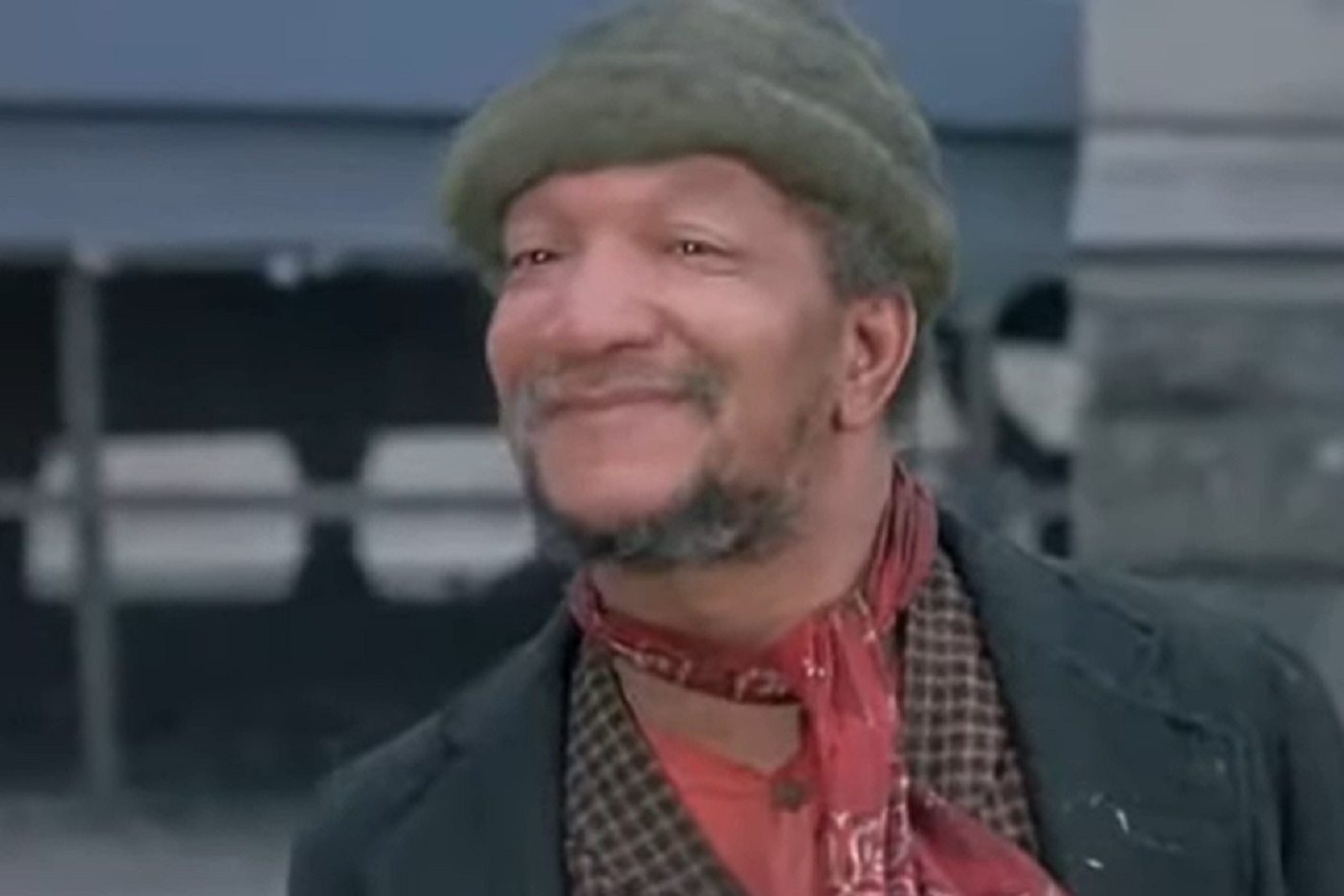 Formosa Productions, Cotton Comes To Harlem (1970)
Formosa Productions, Cotton Comes To Harlem (1970)
8. He Went To Desperate Measures
In the 1940s, with the United States entering WWII, Sanford received his Draft Notice. But he had a plan. Preferring a career in front of an audience instead of a dangerous stint in front of an enemy army, he ate a bar of soap before his medical examination.
The resulting heart palpitations earned him an exemption from service. But a big life event was coming anyway.
 Formosa Productions, Cotton Comes to Harlem (1970)
Formosa Productions, Cotton Comes to Harlem (1970)
9. He Got An Offer He Couldn’t Refuse
In 1942, a singer friend of Foxx’s, JoAnn Baker, told him that a Baltimore nightclub called Gambys was on the hunt for a Master of Ceremonies. With little in the way of work holding him in New York, Sanford headed south to try and make a career out of making people laugh.
But before that could happen he would make one final, major change in his life.
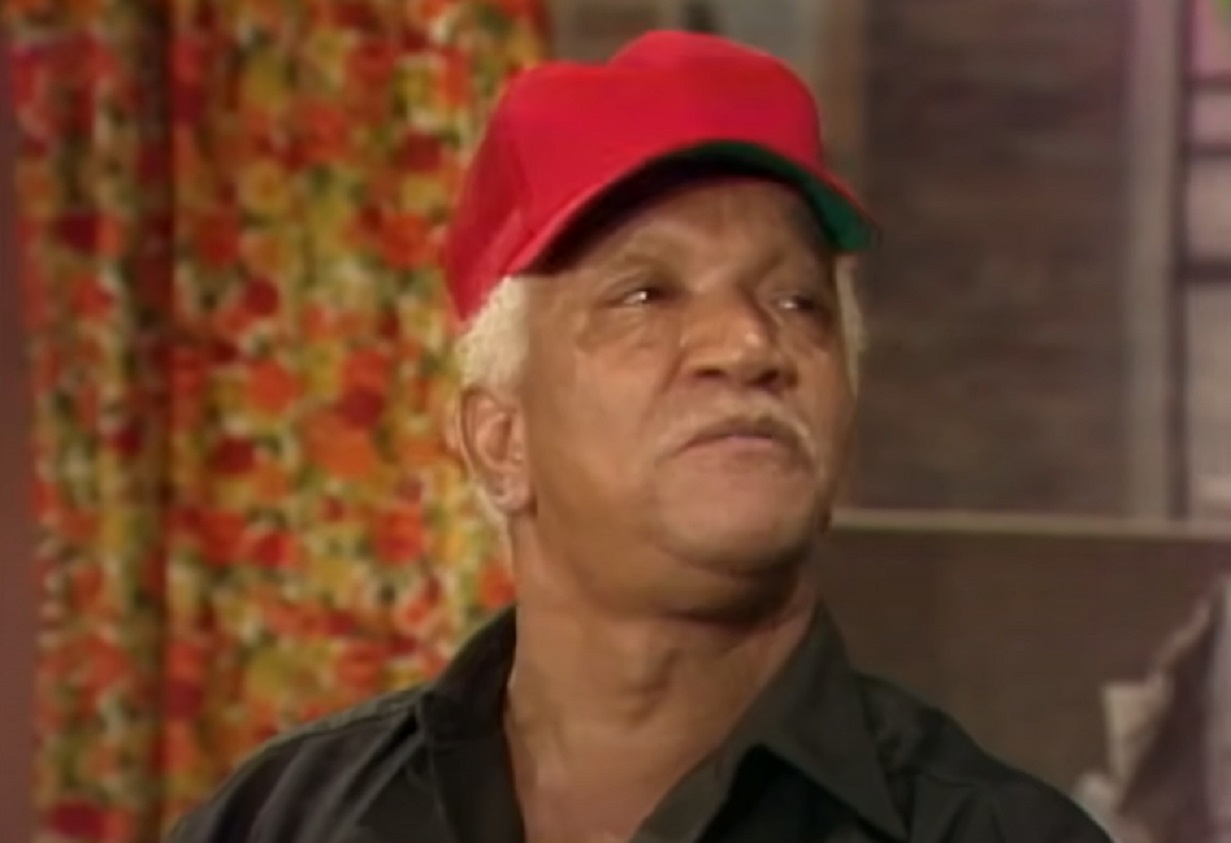 Lorimar, The Redd Foxx Show (1986)
Lorimar, The Redd Foxx Show (1986)
10. He Changed His Name
Perhaps looking to reinvent himself as he embarked on a new career, Foxx, who was still John Sanford to this point, decided he needed a new name for his new job—something catchy. Riffing off of the nickname he’d been given at Jimmy’s, he took Redd as his first name, putting an extra “d” in there to make it memorable.
He chose Foxx in honor of Chicago Baseball great, Jimmie Foxx, and Redd Foxx was born. If only success came that easy...
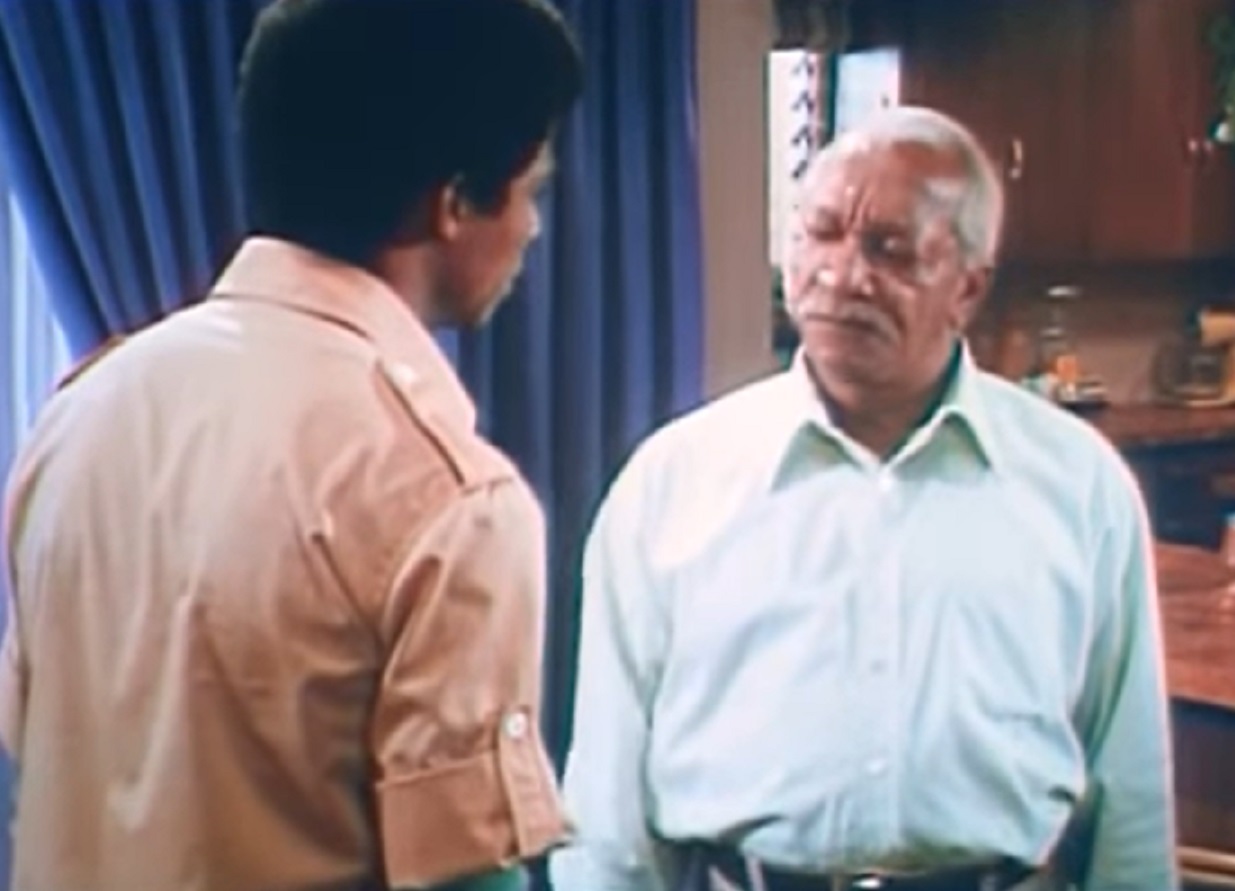 MGM, Norman... Is That You? (1976)
MGM, Norman... Is That You? (1976)
11. He Found Baltimore Tough
Baltimore, as it turned out, was a baptism of fire for the fledgling stand-up comic. As he said, “Baltimore was tough. No use in me lying; that was the toughest [town] on earth to work". The scene toughened him up, but it wasn't long before Foxx decided to head to what he hoped would be greener…and funnier…pastures.
 NBC Television, Wikimedia Commons
NBC Television, Wikimedia Commons
12. He Went Back To The Big Apple
Foxx returned to New York with some experience under his belt. He began to make regular appearances at the predominantly Black theaters and night clubs in and around the east coast, known colloquially as the ‘‘Chitlin’ Circuit”. He enjoyed reasonable success; with his unique, bawdy routines and salty commentaries on everything from marriage to race relations, he made quite a name for himself.
Then, in 1947, he met a man who would help him crank it up a notch.
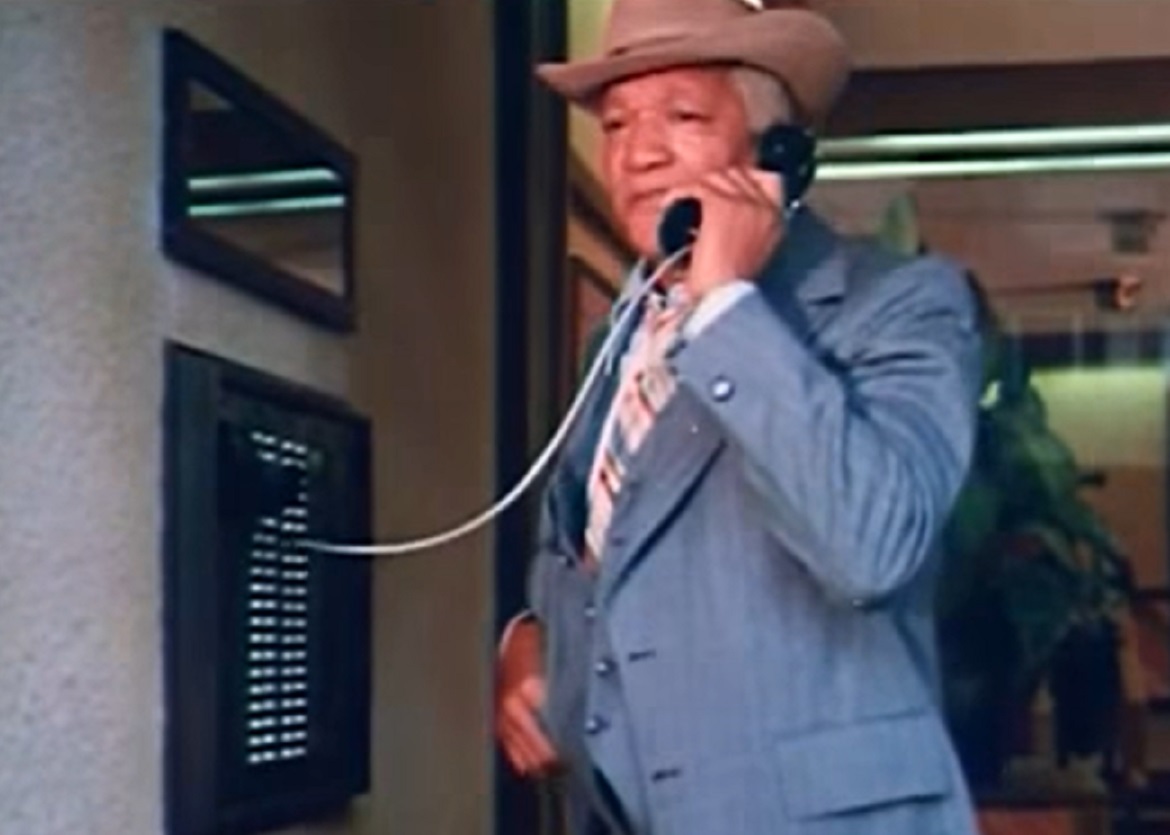 MGM, Norman... Is That You? (1976)
MGM, Norman... Is That You? (1976)

History's most fascinating stories and darkest secrets, delivered to your inbox daily.
13. He Found A Perfect Partner
Foxx hit it off with comic Slappy White to the point that the two of them became lifelong friends, often appearing together on the same bill, even sharing stage time. The two were so successful that within a short time they were making $450 per week, a very decent payday at that time.
Unfortunately for both of them, the good times wouldn’t last forever. Disaster was only one performance away.
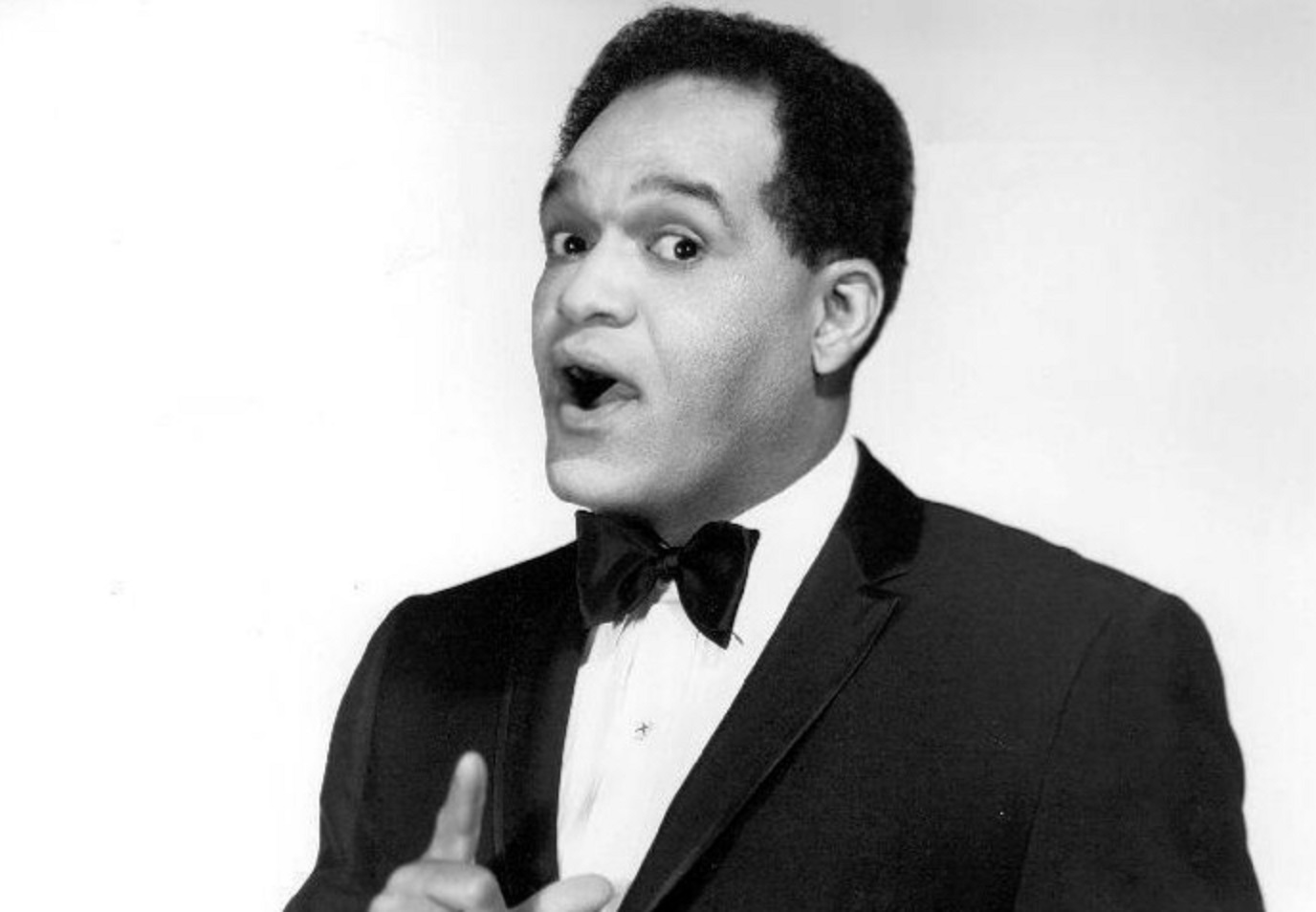 Associated Booking Corporation, Wikimedia Commons
Associated Booking Corporation, Wikimedia Commons
14. One Night Ruined His Routine
Foxx and White were riding high. That is, until they played their biggest show yet, at The Palace on Broadway...and completely flopped. There are no existing critical reviews of the night in question, but it was bad enough for the pair to call it quits. They remained lifelong friends, but would never do stand-up together again.
Foxx was on his own again, but a lucky break was coming his way soon.
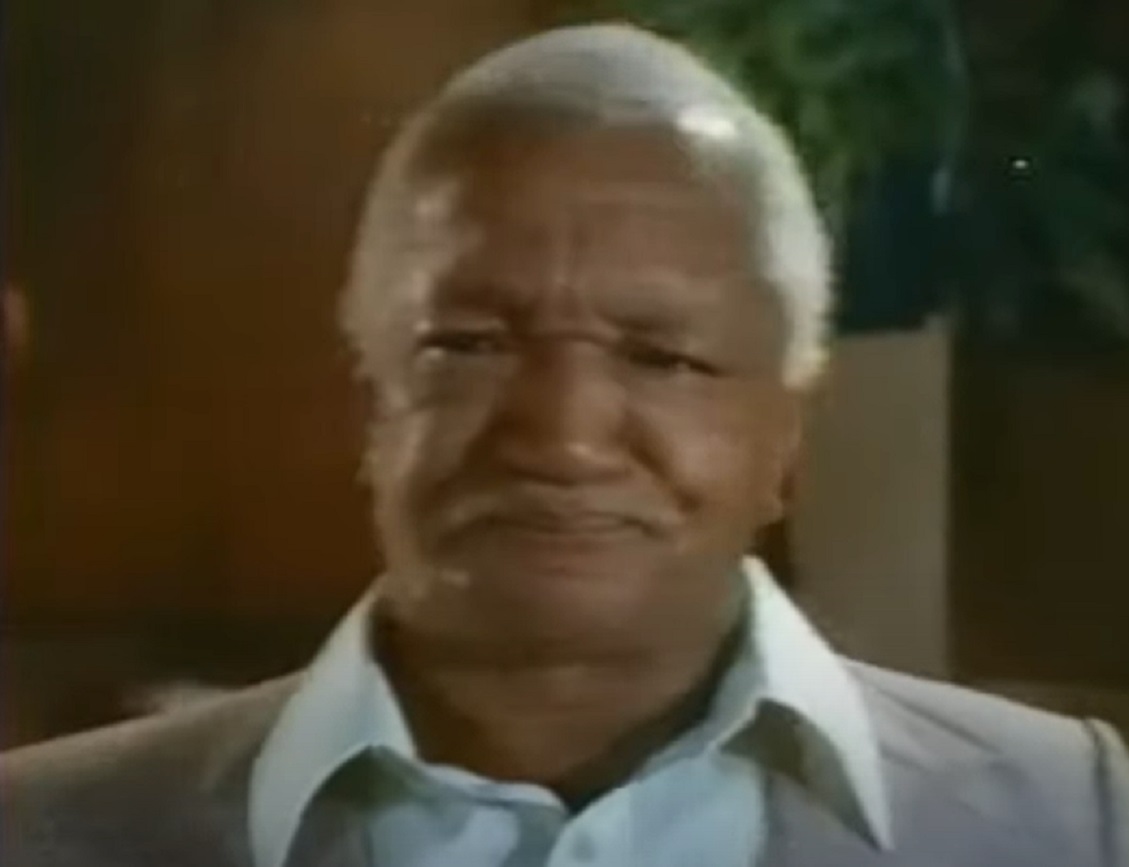 MGM, Norman... Is That You? (1976)
MGM, Norman... Is That You? (1976)
15. He Got A Leg Up From A Diva
Foxx’s partnership with White paid off in one final, important way. White had started his career as a driver for legendary blues singer, Dinah Washington. Washington had consequently seen Foxx on stage, and in the winter of 1951, invited him to join her show on a tour through California.
Foxx was heading to Los Angeles. But the trip would leave a sour taste in his mouth.
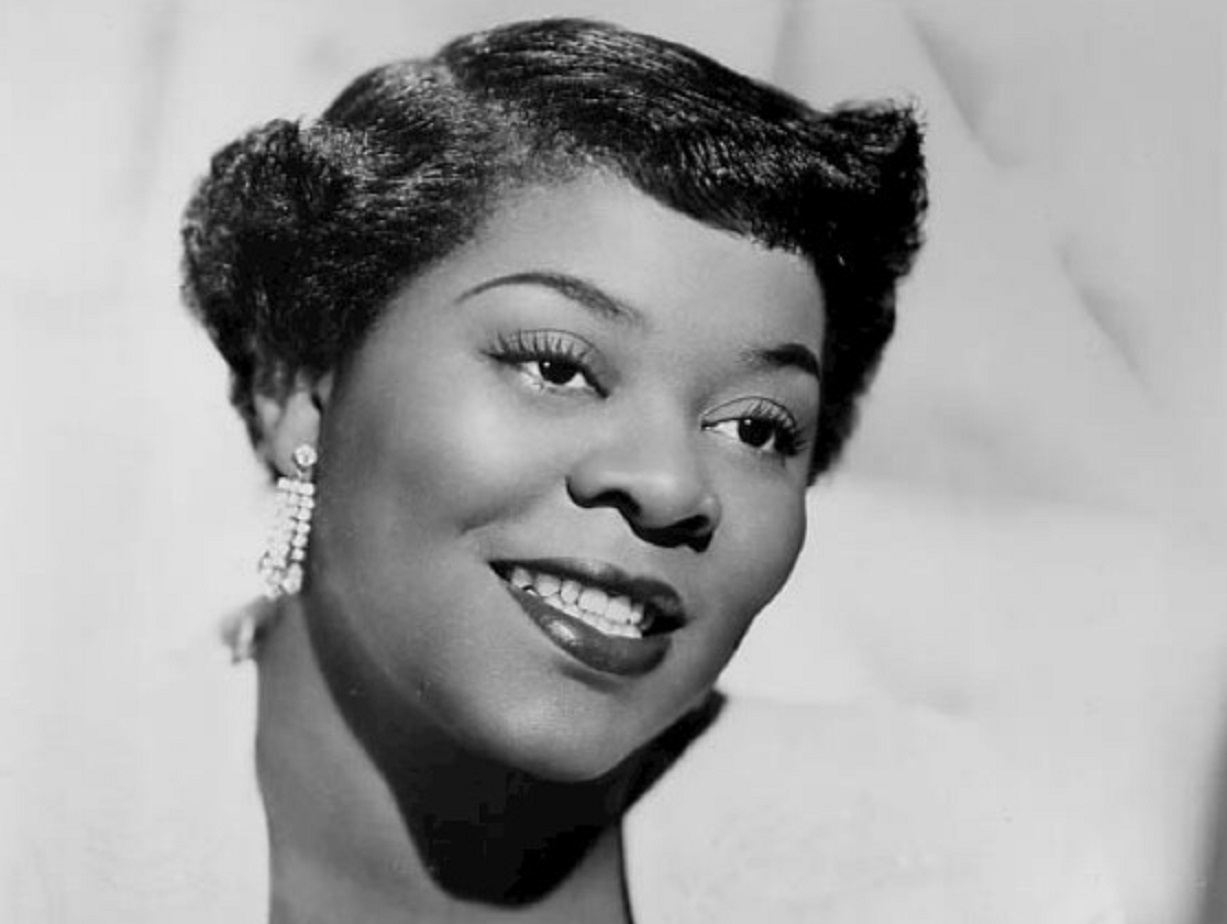 James Kriegsmann, Wikimedia Commons
James Kriegsmann, Wikimedia Commons
16. He Hated The West Coast
What should’ve been a dream gig turned into a nightmare for Foxx. He was one of the first Black comics to play the Los Angeles strip and the racy, explicit nature of his act was not well-received by the largely white crowds. Foxx found California far more segregated than the cosmopolitan NYC, and his engagement with Washington lasted only a month. There was, however, a silver lining in the midst of all that discontent.
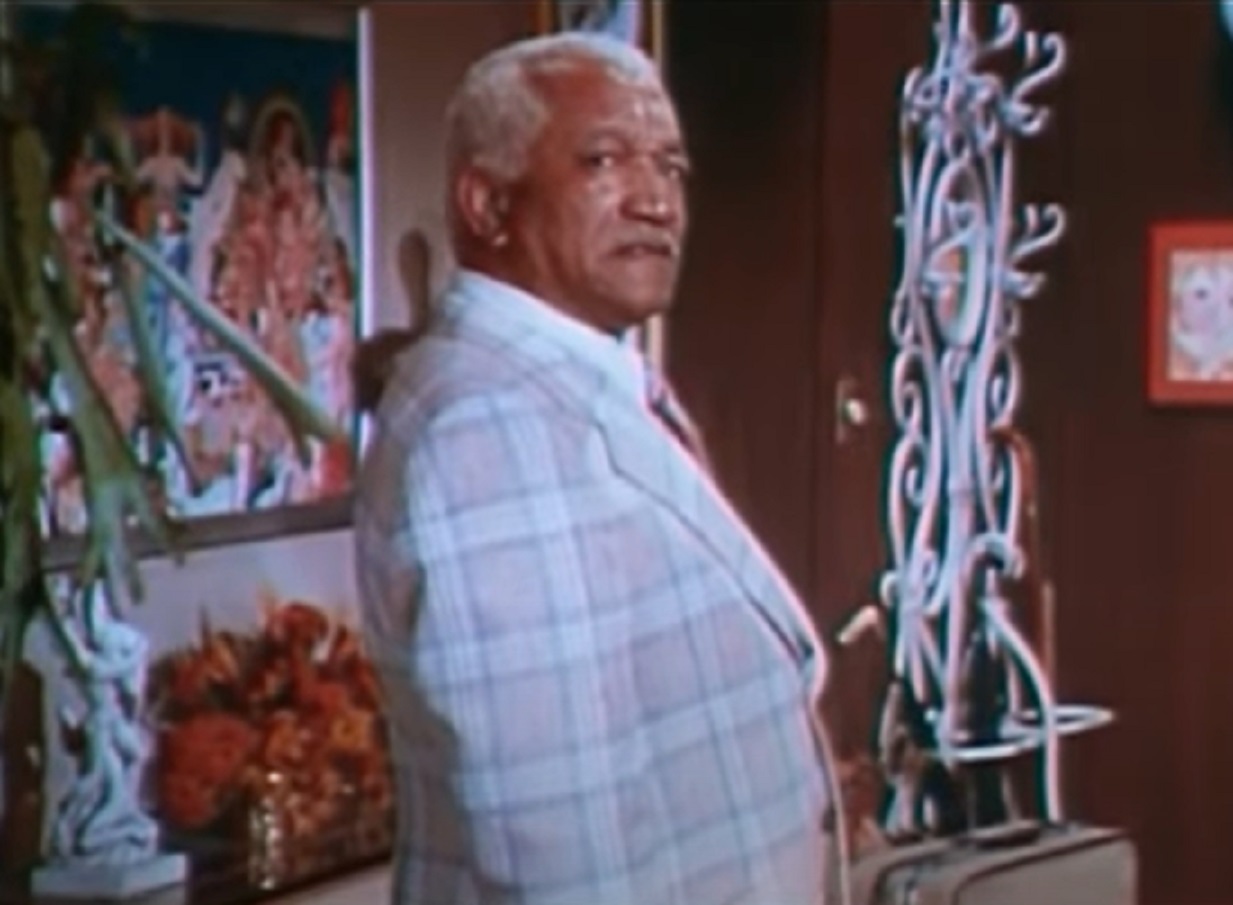 MGM, Norman... Is That You? (1976)
MGM, Norman... Is That You? (1976)
17. He Was Seen By A Record Producer
While performing his act at a Los Angeles club called The Brass Rail, Foxx was spotted by record producer Dootsie Williams. Williams owned Dootone Records and persuaded Foxx to record his routine onto an album. Foxx agreed and was paid $25 to record Laff of the Party. He may not have thought much about it at the time, but it was the first step towards his coronation as the “King of the Party Album”.
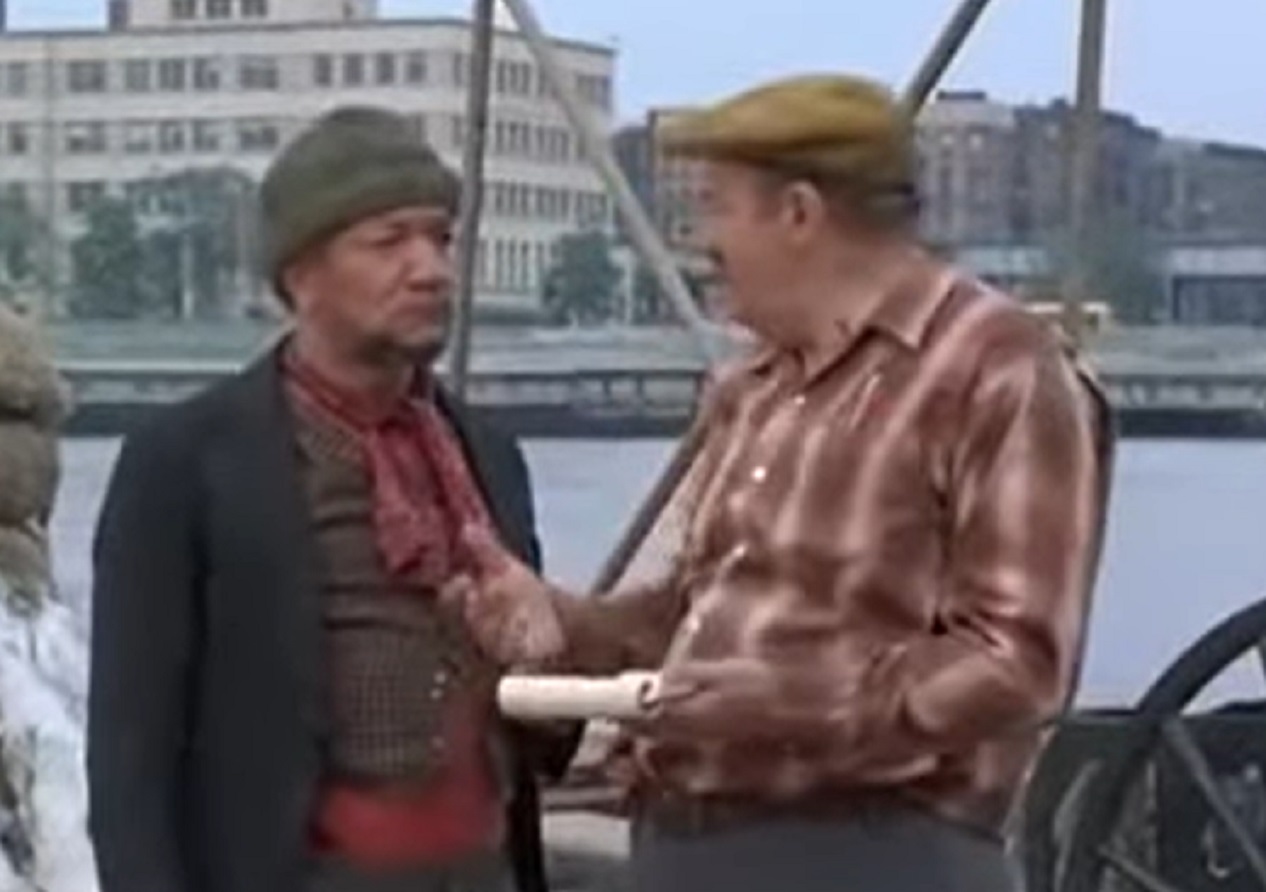 Formosa Productions, Cotton Comes To Harlem (1970)
Formosa Productions, Cotton Comes To Harlem (1970)
18. He Created A Genre
In 1956 Foxx was signed to a long-term contract with Dootone Records and produced over a dozen different albums with them. His “Party Albums” – spoken word with no music – were huge hits in both Black and white households across the country. Decades before Richard Pryor and Eddie Murphy would bring their blue comedy to the screen, Foxx was blazing a spicy, vinyl trail into the heart of America. And he was just getting started.
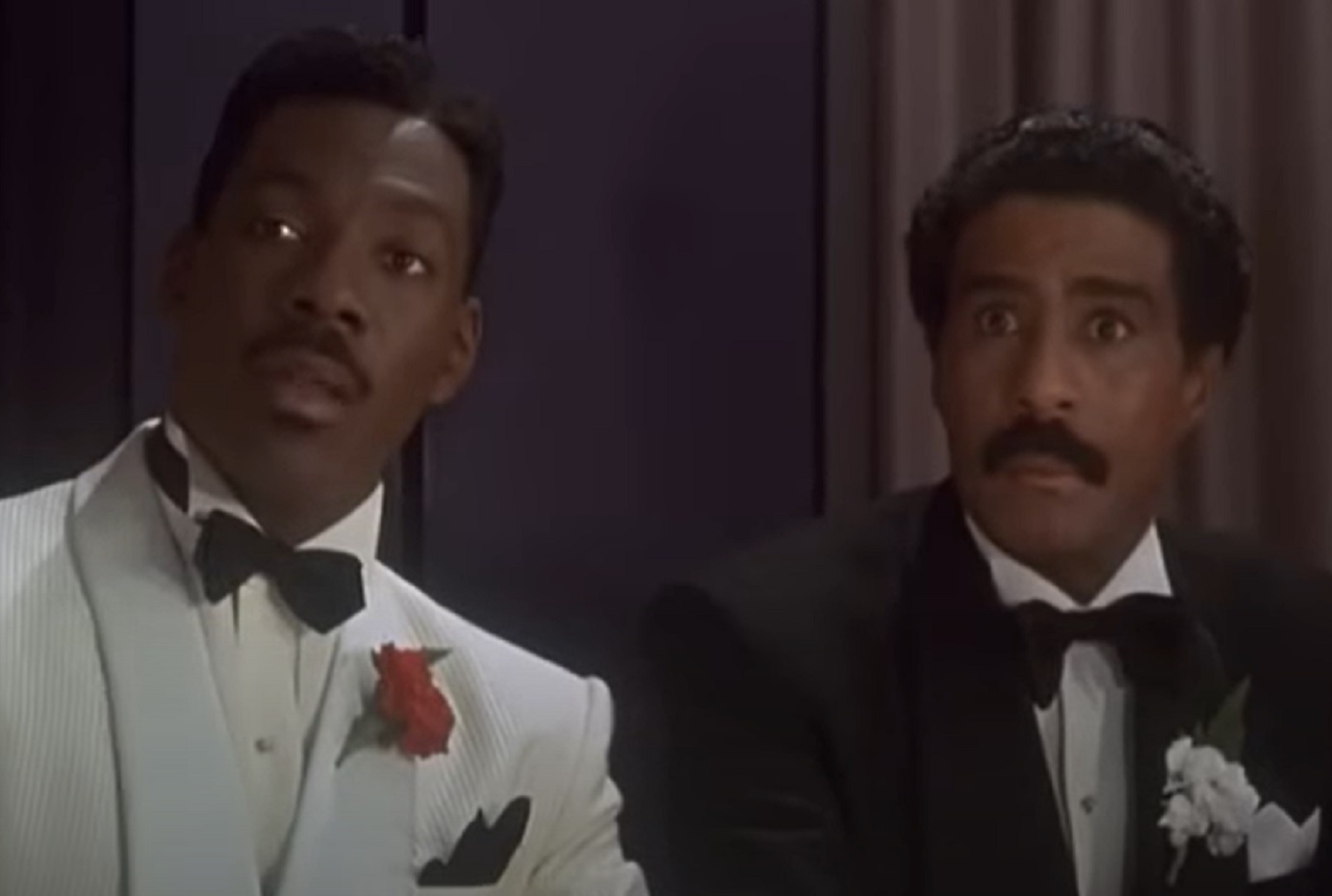 Paramount, Harlem Nights (1989)
Paramount, Harlem Nights (1989)
19. He Left Dootone
As popular as Foxx’s albums were becoming, his contract with Dootone was not a profitable one—for him, at least. He left Dootone in the early 60s and went on to record for MF Records, King Records and later Loma Records, an imprint of Reprise. As the years went on, Foxx's expletive-laced material became bolder and bolder.
It got to the point where some record stores only sold them under the counter. With his popularity soaring, a change began to happen.
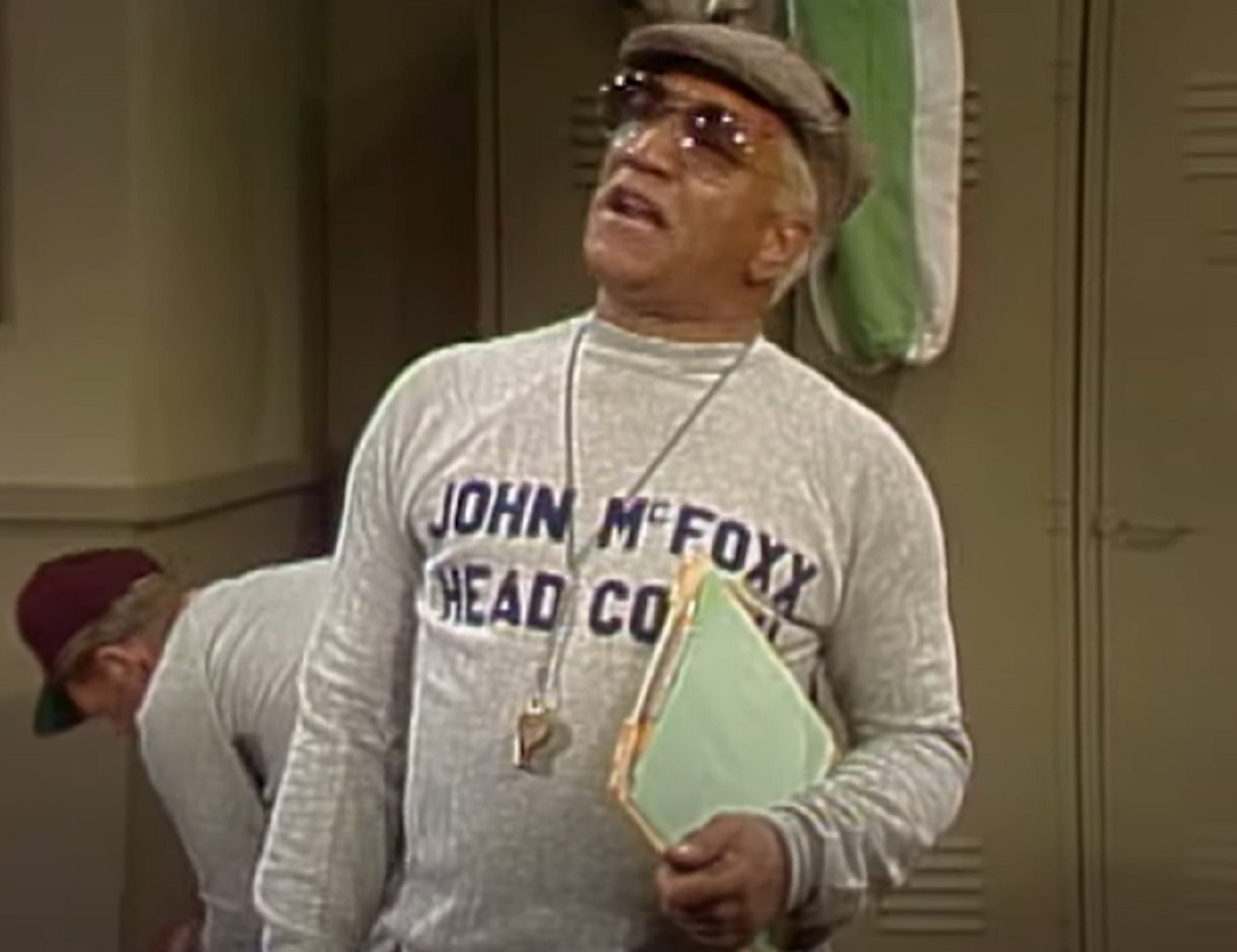 Lorimar, The Redd Foxx Show (1986)
Lorimar, The Redd Foxx Show (1986)
20. He Gained Popularity With White Audiences
In 1959, Foxx, bridged the racial gap by playing the predominantly white Basin Street East. Within a year he was playing to largely white audiences in Vegas, headlining in clubs where no Black comedian had ever worked—including the Sunset Strip’s Summit Club.
There, his audiences were peppered with television producers and casting agents. It wasn’t long before his phone began to ring.
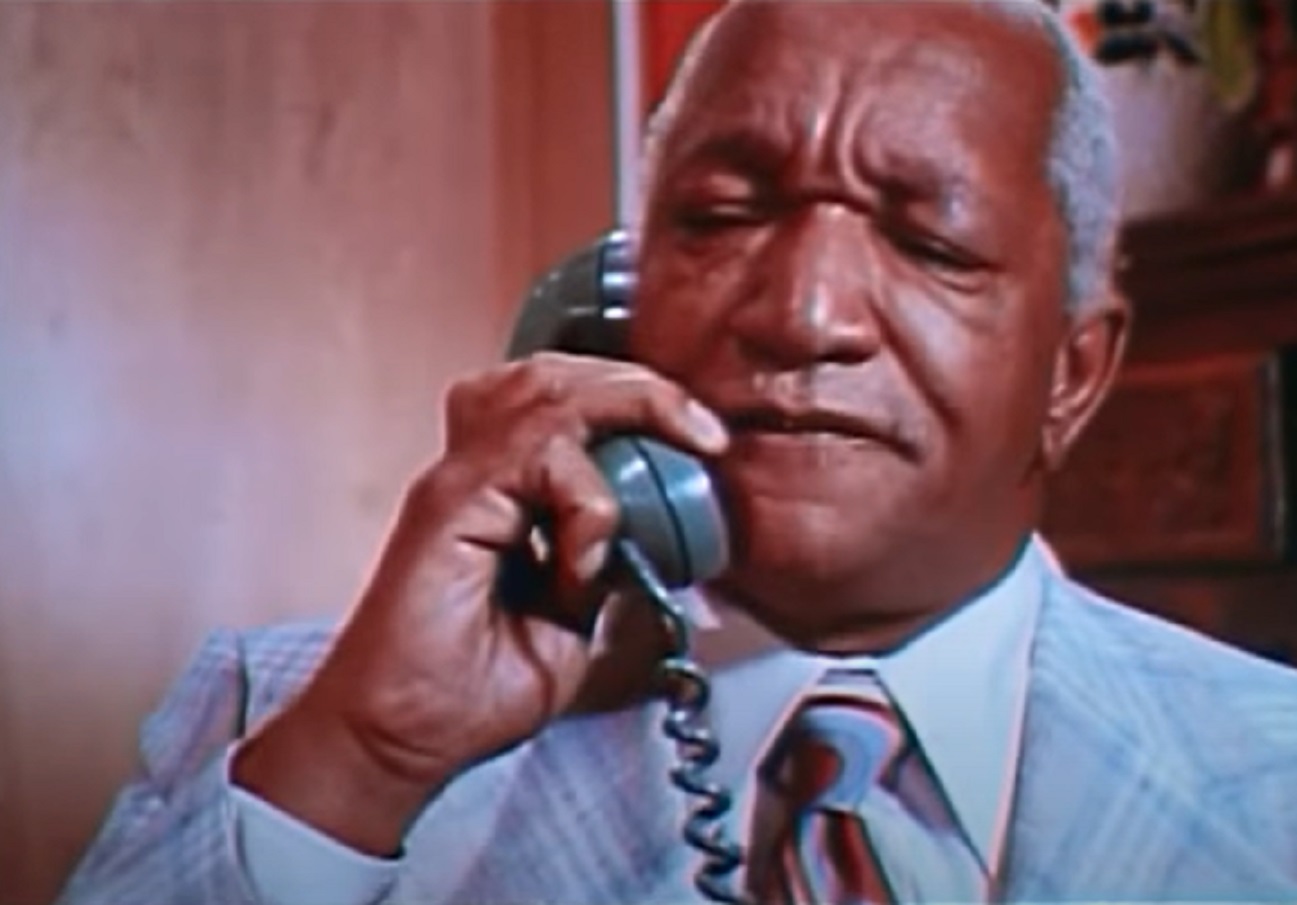 MGM, Norman... Is That You? (1976)
MGM, Norman... Is That You? (1976)
21. He Made The Leap To TV
Up until this point, television had been extremely nervous of coming anywhere near Foxx. His off-color, shocking style of comedy was deemed too much for the small screen. In 1964, however, Foxx accepted an invitation to The Today Show. Foxx wasn't ready for what happened next.
His appearance was so successful that he was immediately deluged with invitations to virtually every major talk show on television. His career was on fire. Unfortunately, his personal life was too.
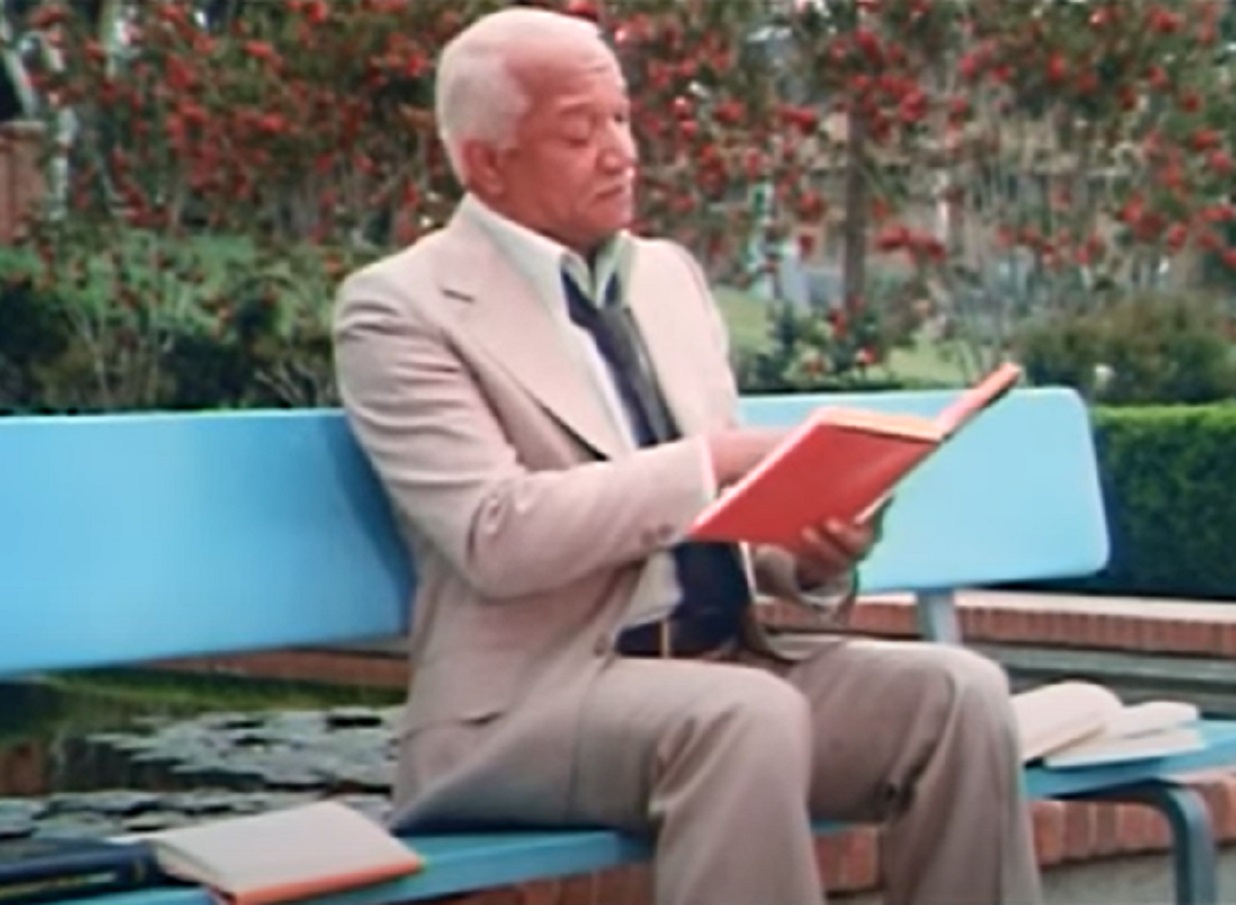 MGM, Norman... Is That You? (1976)
MGM, Norman... Is That You? (1976)
22. He Had Two Failed Marriages
By this point, Foxx had already been married two times. His first marriage, to Evelyn Killebrew in 1948, was short-lived and the two divorced in 1951. Little is known about Killebrew or the reasons for the split, but the two of them were very young and Foxx was rumored to have played around—a habit that would rear its ugly head just a few years later, in marriage number two.
 NBC Television, Wikimedia Commons
NBC Television, Wikimedia Commons
23. His Second Go-Round Wasn’t Much Better
A few years later, in 1956, Foxx married Betty Jean Harris, a showgirl and dancer with a nine-year old daughter. Harris agreed to quit her job in show business and stay at home as a full-time housewife. But she also had plans to manage Foxx’s business affairs, including Redd Foxx Enterprises and a chain of record stores.
But after a few years, things became unmanageable.
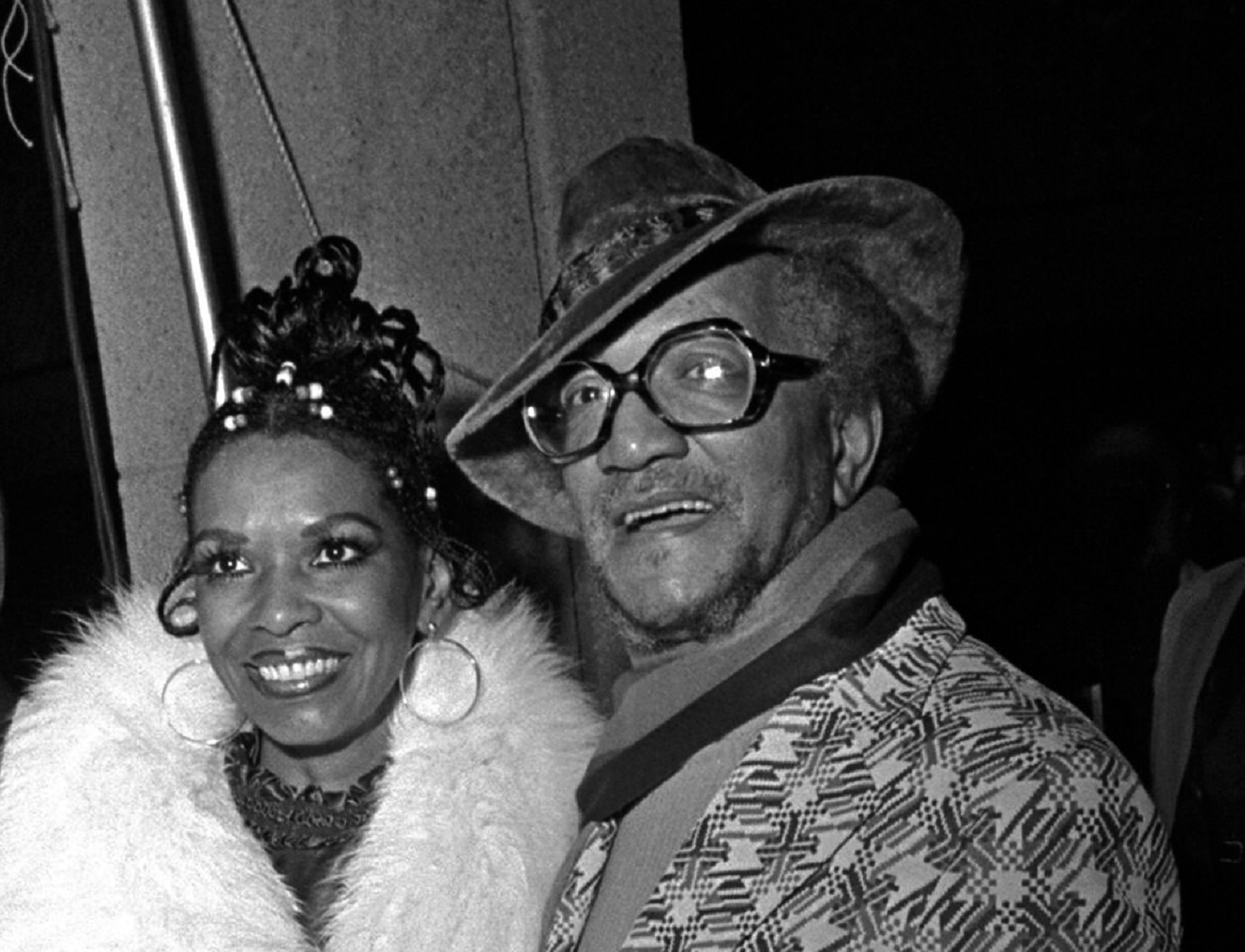 Los Angeles Times, CC BY 4.0, Wikimedia Commons
Los Angeles Times, CC BY 4.0, Wikimedia Commons
24. He Was Fooling Around
Despite their business connections, Foxx’s marriage to Harris disintegrated amidst allegations of infidelity. After 18 years, Foxx filed for divorce on the grounds of “incompatibility”. But his wife was not about to go away quietly.
It soon became apparent that while staying at home as a full-time housewife, she’d been cooking more than just dinner…she’d been cooking the books.
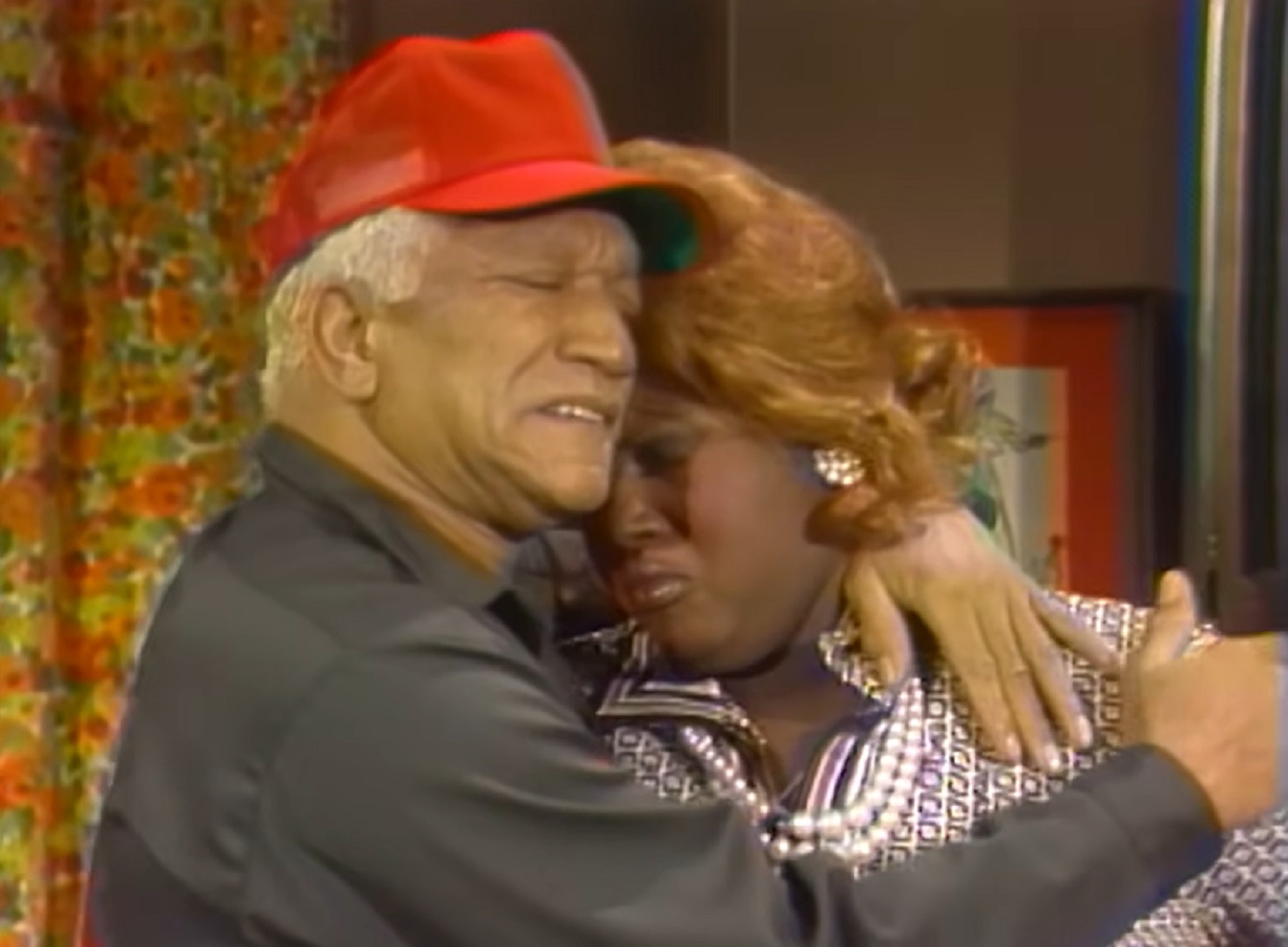 Lorimar, The Redd Foxx Show (1986)
Lorimar, The Redd Foxx Show (1986)
25. He Was Being Fooled
Apparently, Harris had been less than trustworthy herself during her 18 years with Foxx. While managing his business affairs she had managed to drain over $110,000 from Foxx’s bank accounts and various companies. When things got really acrimonious, Foxx was forced to take radical steps to deal with her.
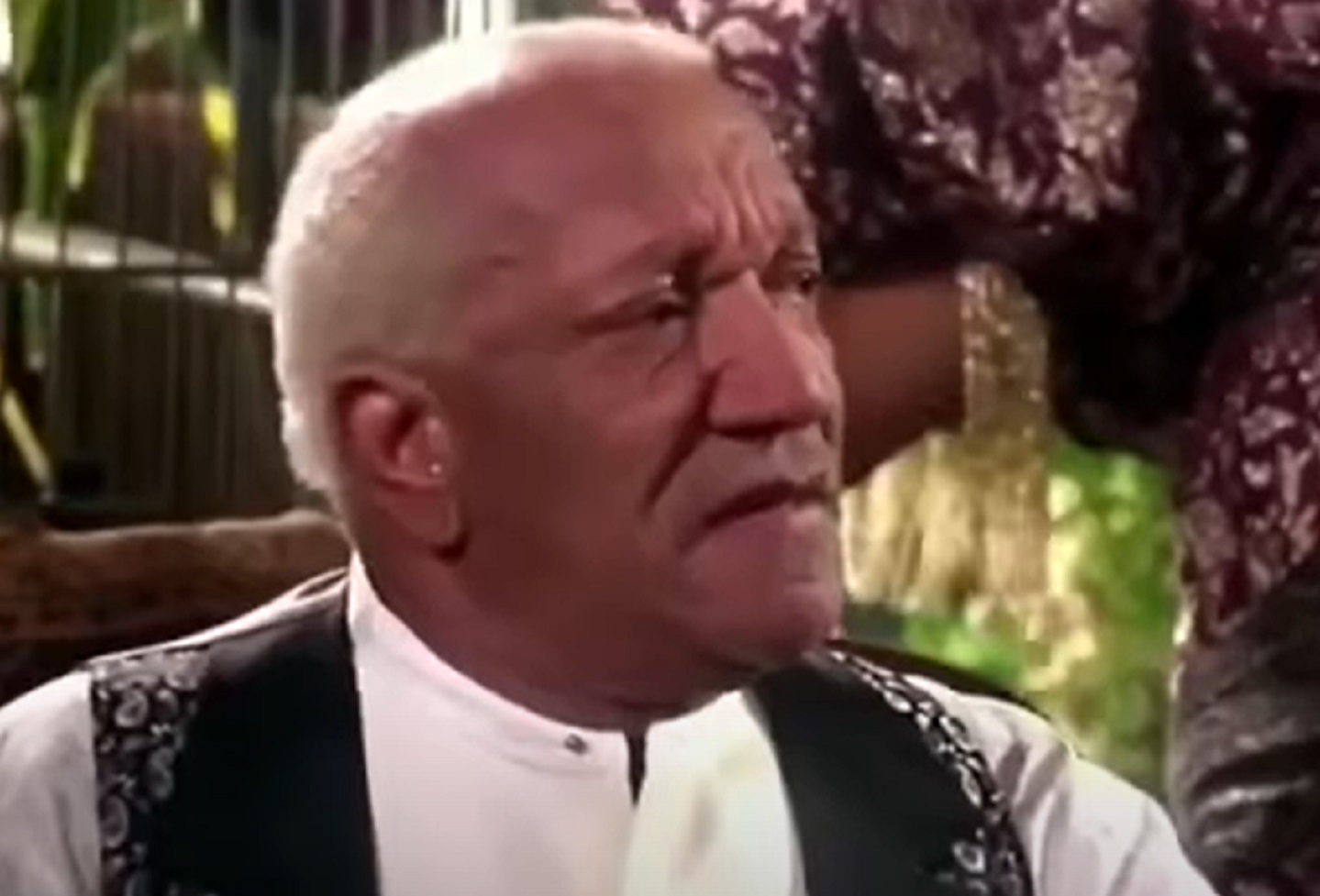 Paramount, Harlem Nights (1989)
Paramount, Harlem Nights (1989)
26. He Had To Get The Police Involved
It’s not known how long Harris and Foxx still lived under the same roof while divorce proceedings were being carried out, but Foxx obviously didn’t trust her as far as he could throw her. Harris wanted her pound of flesh. As part of the divorce agreement therefore, Foxx obtained a restraining order, preventing her from "removing, hiding or secreting property" from their Vegas home.
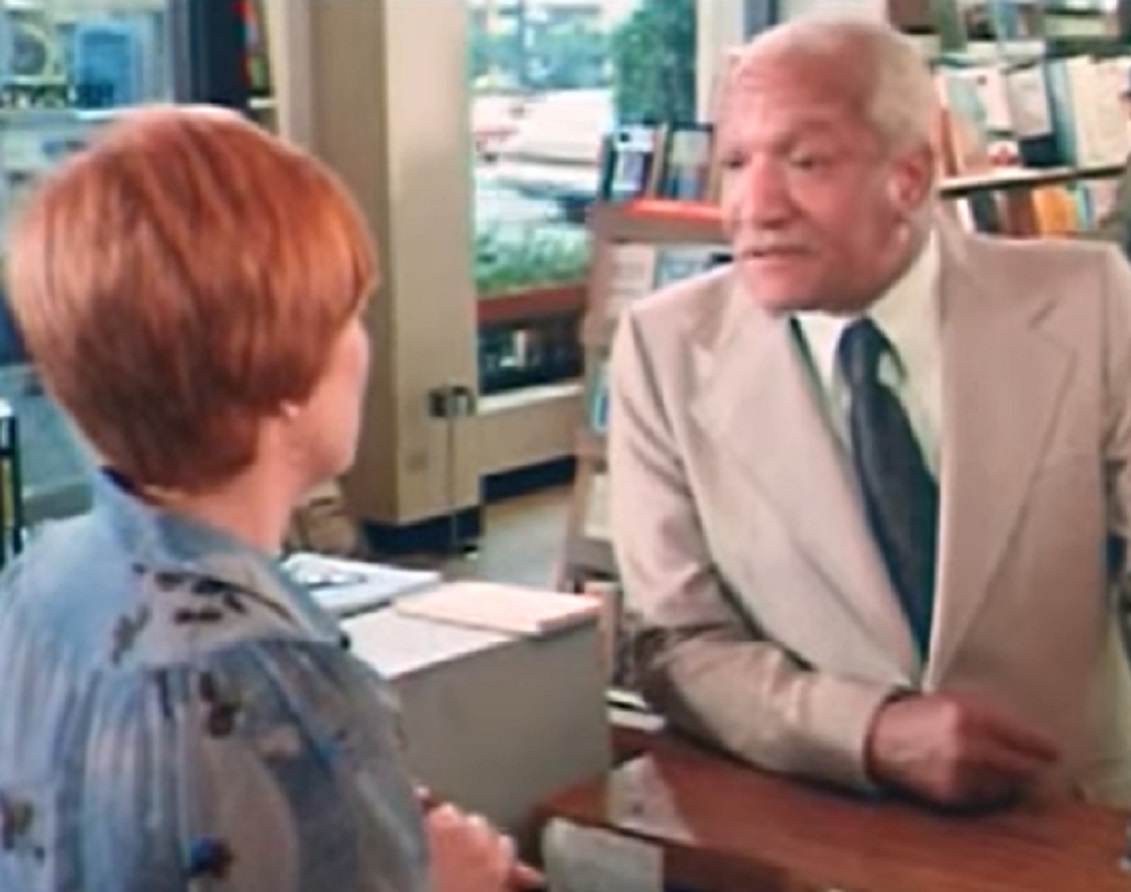 MGM, Norman... Is That You? (1976)
MGM, Norman... Is That You? (1976)
27. He Made His First Big Screen Appearance
In 1970 Foxx took a role in Ossie Davis’s film Cotton Comes To Harlem. His performance of Uncle Bud, an elderly junk dealer who discovers a fortune in cash hidden inside a bale of hay, had heart, humor, and integrity. Although it was a small role, it was the start of something big, because it caught the eye of someone who could turn it into something much bigger.
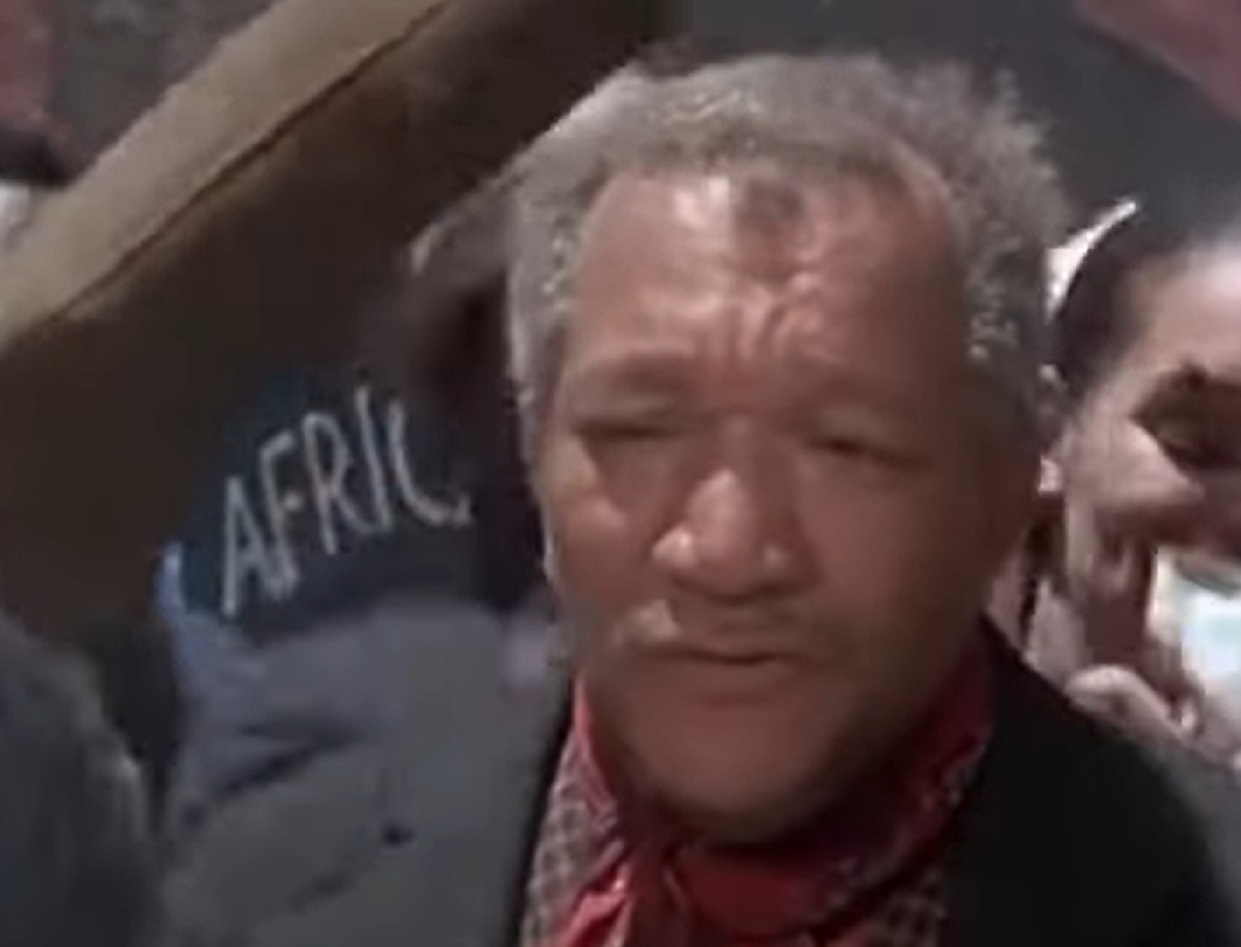 Formosa Productions, Cotton Comes To Harlem (1970)
Formosa Productions, Cotton Comes To Harlem (1970)
28. He Caught A VIP’S Attention
In the early 70s, Norman Lear, fresh from creating the smash hit sit-com All In The Family, was eagerly searching for the lead character in a new series he was producing. Based on a popular BBC comedy, Steptoe And Son, the new show centered on the curmudgeonly patriarch of a family who owned a junkyard.
When Lear and his associate Bud Yorkin saw Foxx as Uncle Bud, they knew they had found their man.
 NBC Television, Wikimedia Commons
NBC Television, Wikimedia Commons
29. He Had An Iconic Show
On January 14, 1972, Sanford And Son premiered on NBC to rave reviews. The show was an instant hit and Foxx’s character, Fred G. Sanford (whom he had named after his brother—not the father who'd abandoned them), became a household name right up alongside Lear’s other icon, Archie Bunker.
The show was also enormously groundbreaking, being one of the first shows in history to portray members of a racial minority with “respect, warmth and affection”. And it just got bigger and bigger.
 Robert Garner Attractions, Wikimedia Commons
Robert Garner Attractions, Wikimedia Commons
30. He Was On Top Of The Charts
Sanford and Son continued to garner enormous ratings. For the first four years of its five year run, the show was continually amongst the Top 10 programs on television. In fact, at one point, the show was so popular that NBC ran it twice weekly. Foxx’s catchphrase “You big dummy!” and his over the top, faked heart attacks, were a hit with viewers. Needless to say, the network said a very large thank you to the show's star.
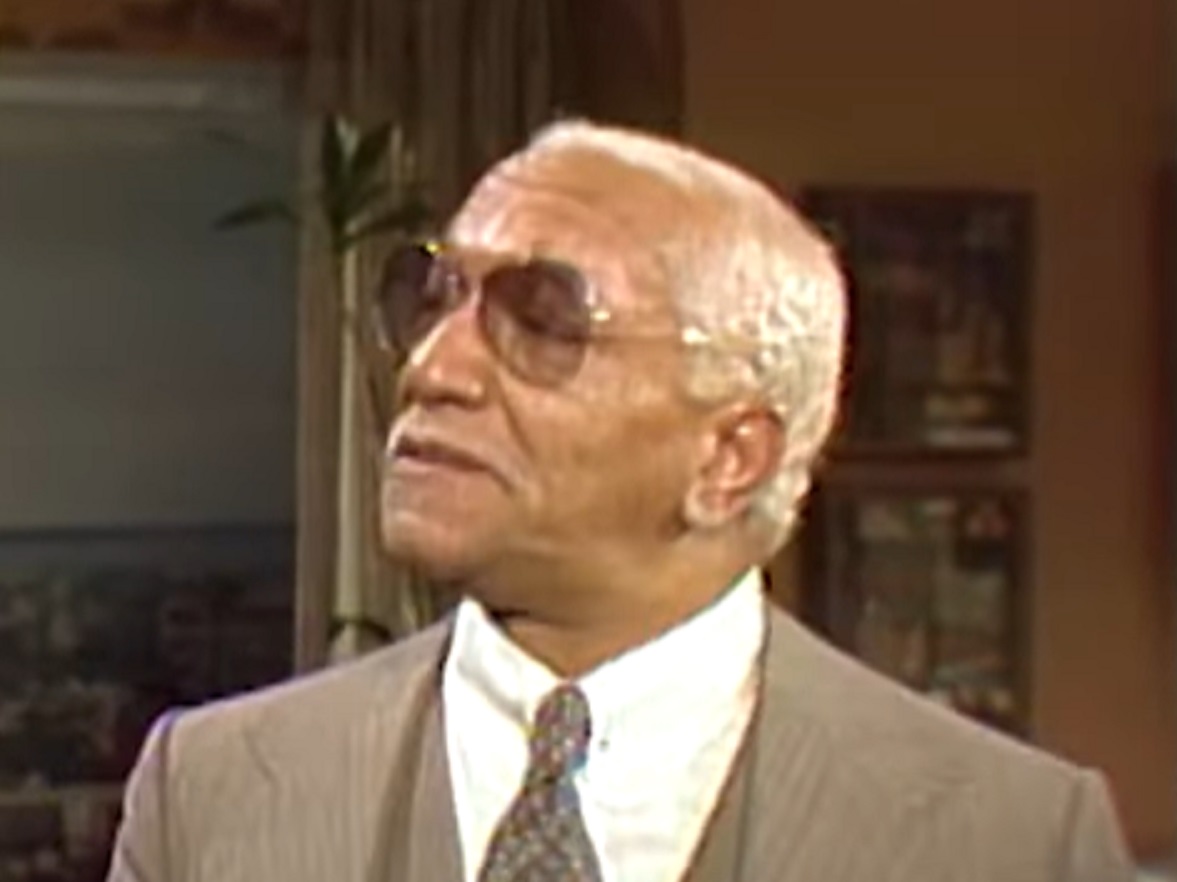 Lorimar, The Redd Foxx Show (1986)
Lorimar, The Redd Foxx Show (1986)
31. He Was Raking In The Cash
With the huge success of the show came a hefty pay-day for its star. Before long, Foxx was earning $35,000 an episode, making him one of the highest paid television performers in the world. Most certainly, the highest paid Black performer on TV.
And Foxx’s heart was as big as his bank account. Unfortunately, that would eventually get him into serious trouble.
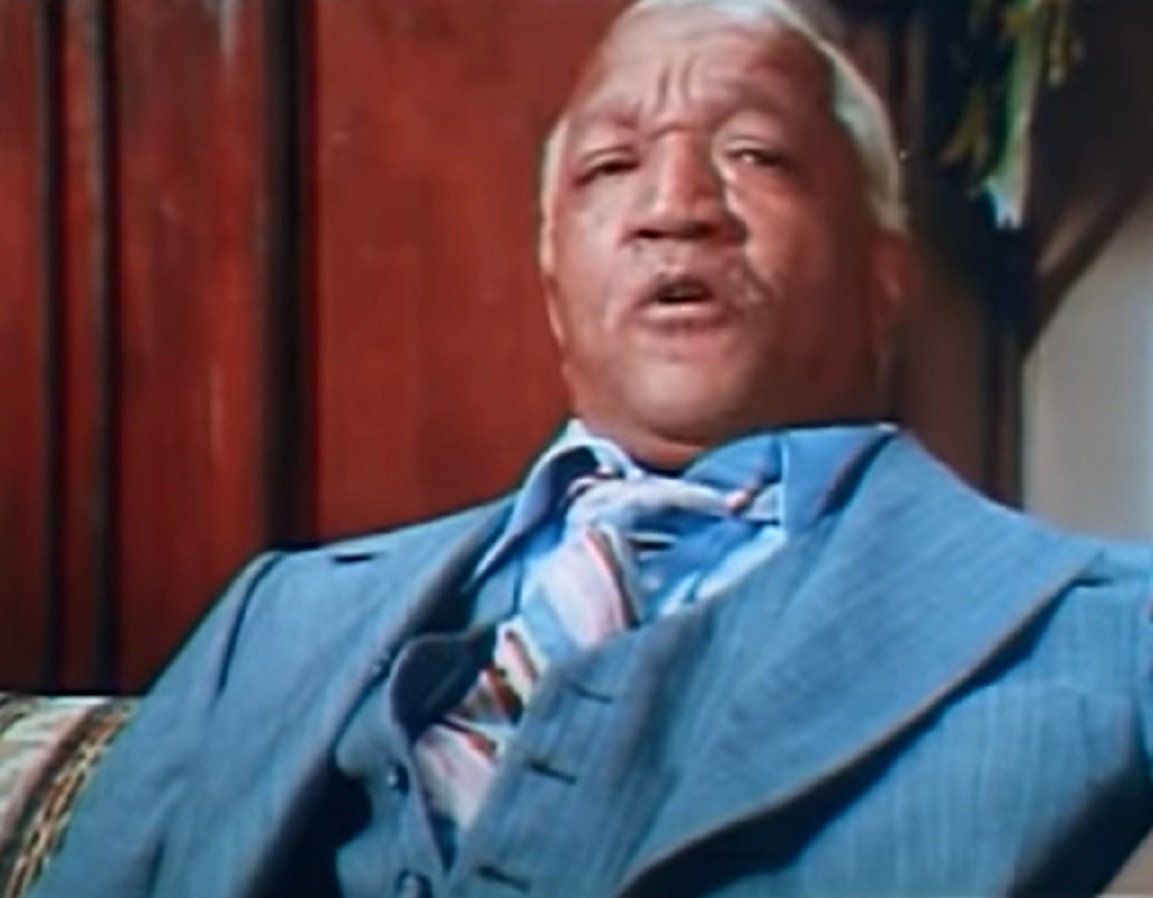 MGM, Norman... Is That You? (1976)
MGM, Norman... Is That You? (1976)
32. He Knew How To Spend Money
Perhaps because of his poor background, or because he lacked good financial advice, or maybe he just plain liked to buy things, but Redd Foxx knew how to spread his paycheck around. By the end of the second season of Sandford and Son, he owned five homes, a TV production company, a theatrical management agency, a Hollywood beauty shop, and a Los Angeles nightclub. The latter ended up influencing some very big names.
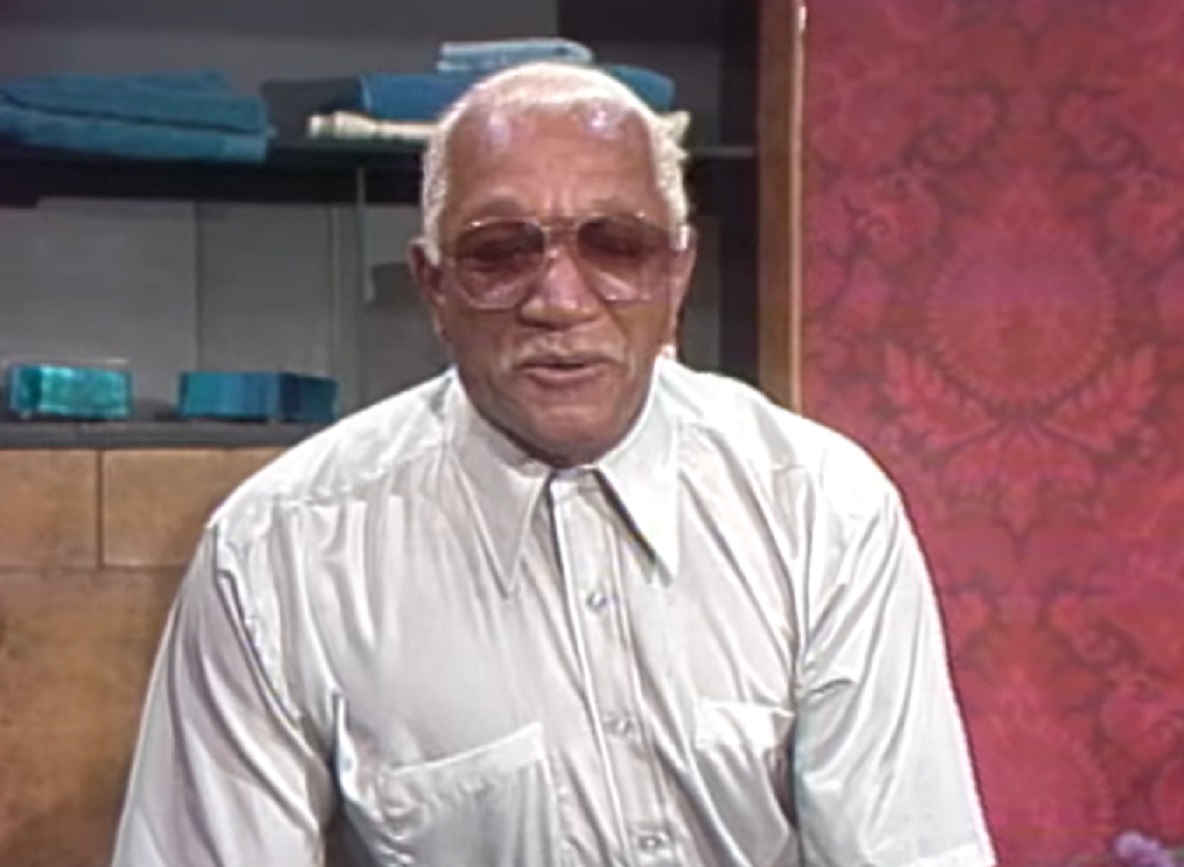 Lorimar, The Redd Foxx Show (1986)
Lorimar, The Redd Foxx Show (1986)
33. He Never Forgot Where He Came From
As successful as he got, Foxx remembered his roots and the people he met along the way. As a tribute to friends, he named characters in the show after them and he was never hesitant to help other struggling or cash-strapped artists.
He once gave actor Pat Morita $3,500 to help purchase his first home and essentially guaranteed comic Flip Wilson's success after touting his talent to Johnny Carson. But the most valuable thing he gave was support.
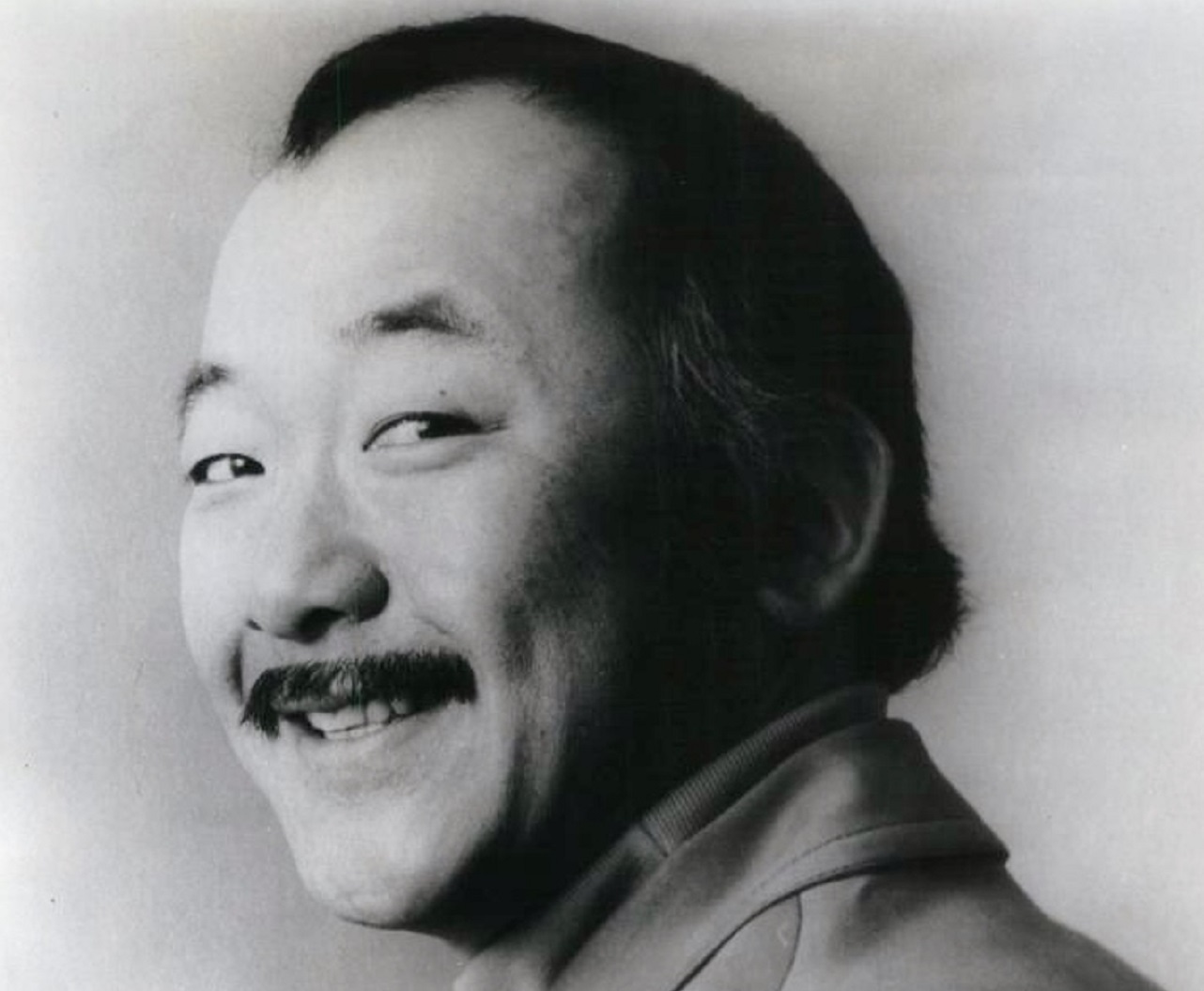 George E. Marienthal Enterprises, Wikimedia Commons
George E. Marienthal Enterprises, Wikimedia Commons
34. He Gave Numbers Of Young Comics Their Breaks
At his LA comedy club, Foxx not only had audiences in stitches, but also the ear of many young, up and coming comics. He became well known for his kindness and generosity with those learning the craft of standup. In the words of Foxx's protege Richard Pryor, "I learned a whole lot working at Redd’s club. I got to watch him every night and he gave me inspiration and encouragement".
Even so, not everyone loved Redd Foxx. In fact, many people hated his guts.
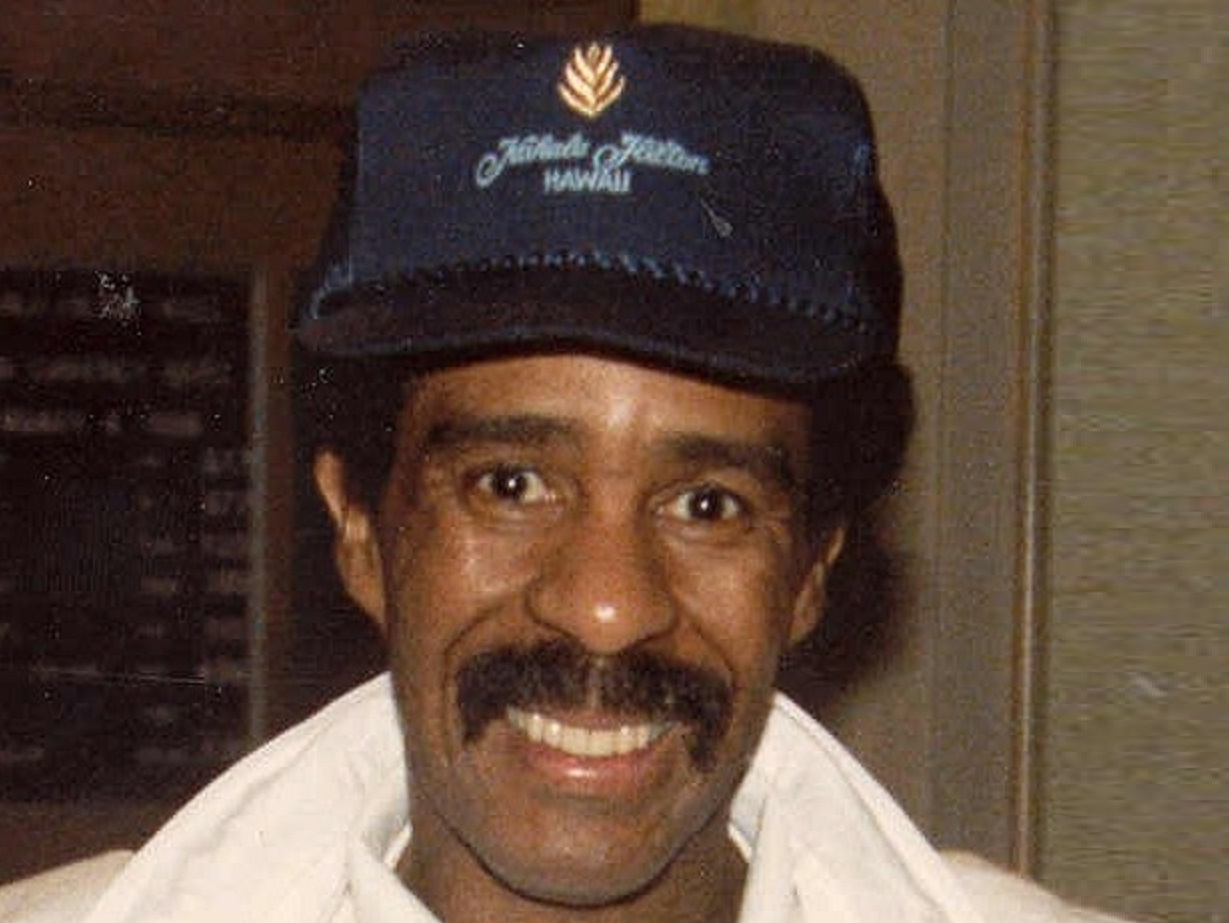 Alan Light, CC BY 2.0, Wikimedia Commons
Alan Light, CC BY 2.0, Wikimedia Commons
35. He Came Under Criticism
In spite of Sanford and Son’s success, some critics slammed Foxx for portraying a “stereotyped, good-for-nothing Black roustabout”. The allegation stung Foxx, who had long fought racial prejudice, especially in the entertainment industry.
"That’s what hurts me more than anything else," Foxx responded, “To see Blacks criticize a man who was making a living. [Sanford] wasn’t on relief. He didn’t ask the government for nothing".
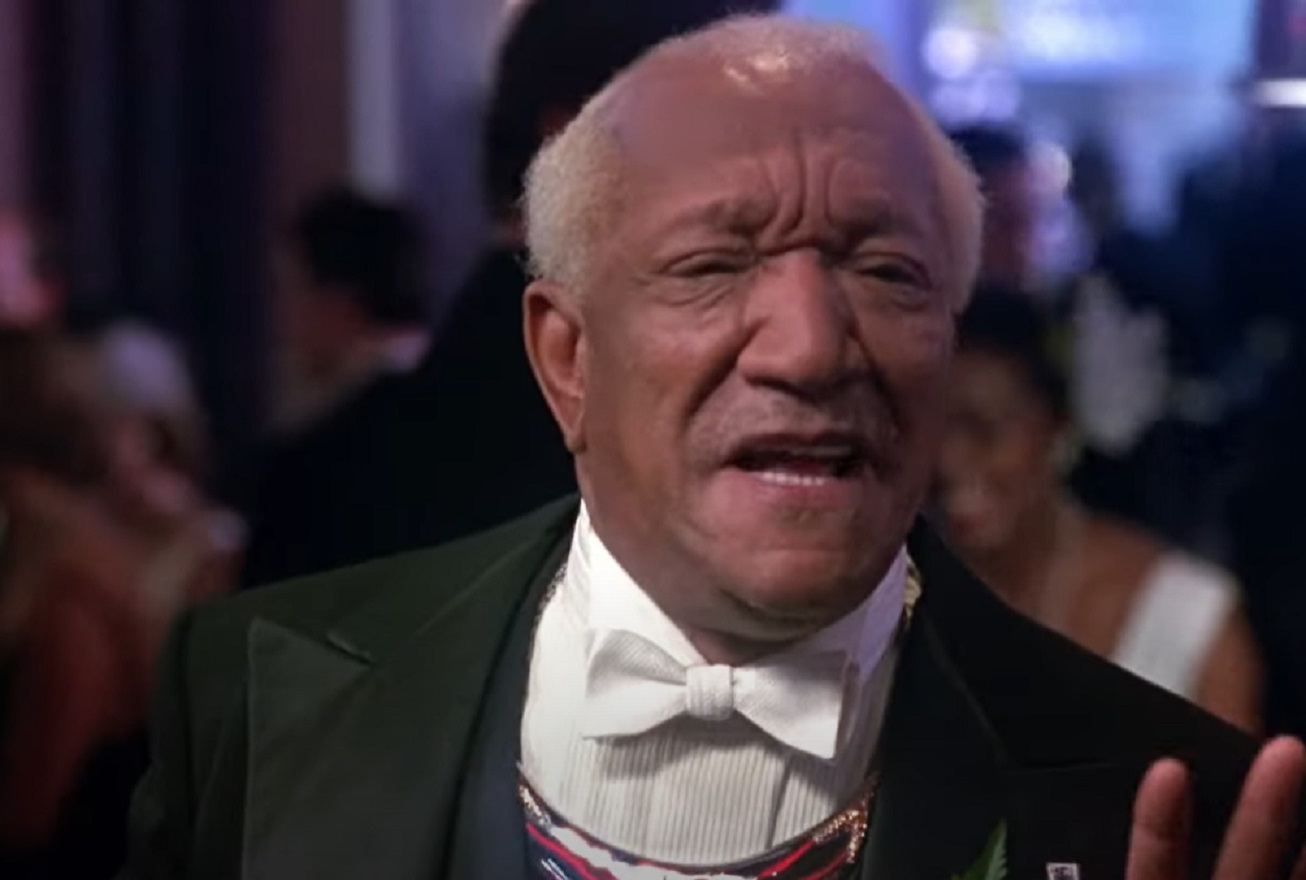 Paramount, Harlem Nights (1989)
Paramount, Harlem Nights (1989)
36. He Tangled With The Network
After winning a Golden Globe Award and garnering several Emmy nominations for his portrayal of Fred Sanford, Foxx’s enthusiasm for the show began to wear thin. After the second season, he began to lock horns with his network bosses over creative control, working conditions and, of course, money.
Eventually things got so bad that Foxx pulled the ultimate power play.
37. He Didn’t Show Up For Work
Midway through the third season, Foxx simply stopped showing up for taping. Hamstrung, the network scrambled to write his character out of the final six episodes, claiming their star could not perform due to health reasons. Foxx’s behavior came as a complete surprise to everyone.
Not least of whom was Demond Wilson, the actor who played his son Lamont on the show.
 Robert Garner Attractions, Wikimedia Commons
Robert Garner Attractions, Wikimedia Commons
38. He Was A Difficult Man To Know
Even the man who had played his son for the past three seasons was completely blindsided by Foxx’s walk-out. Demond Wilson said, later, “My hurt was that he didn't come to me about throwing the towel in - I found out in the hallway at NBC from a newscaster. I forgave him and I loved Redd, but I never forgot that".
But there was no love lost between Foxx and management.
39. He Wanted More Money
Foxx had claimed the dispute was about working conditions, but in reality, he and the NBC brass were deadlocked over salary issues. Foxx had deep pockets, but he also had a knack for emptying them quickly. The network’s next move proved too much for the cash-strapped comic.
 NBC Television, Wikimedia Commons
NBC Television, Wikimedia Commons
40. He Was Sued By NBC
NBC’s response to Foxx’s truancy was to slap a $10 million lawsuit on the comic. Knowing he was in breach of contract, Foxx returned to the series and dutifully, if not grudgingly, completed six seasons in total. If only he’d had a crystal ball, he might’ve stayed with the show longer.
His career had peaked, but he just didn’t realize it yet. Meanwhile, his personal life was in tatters as well.
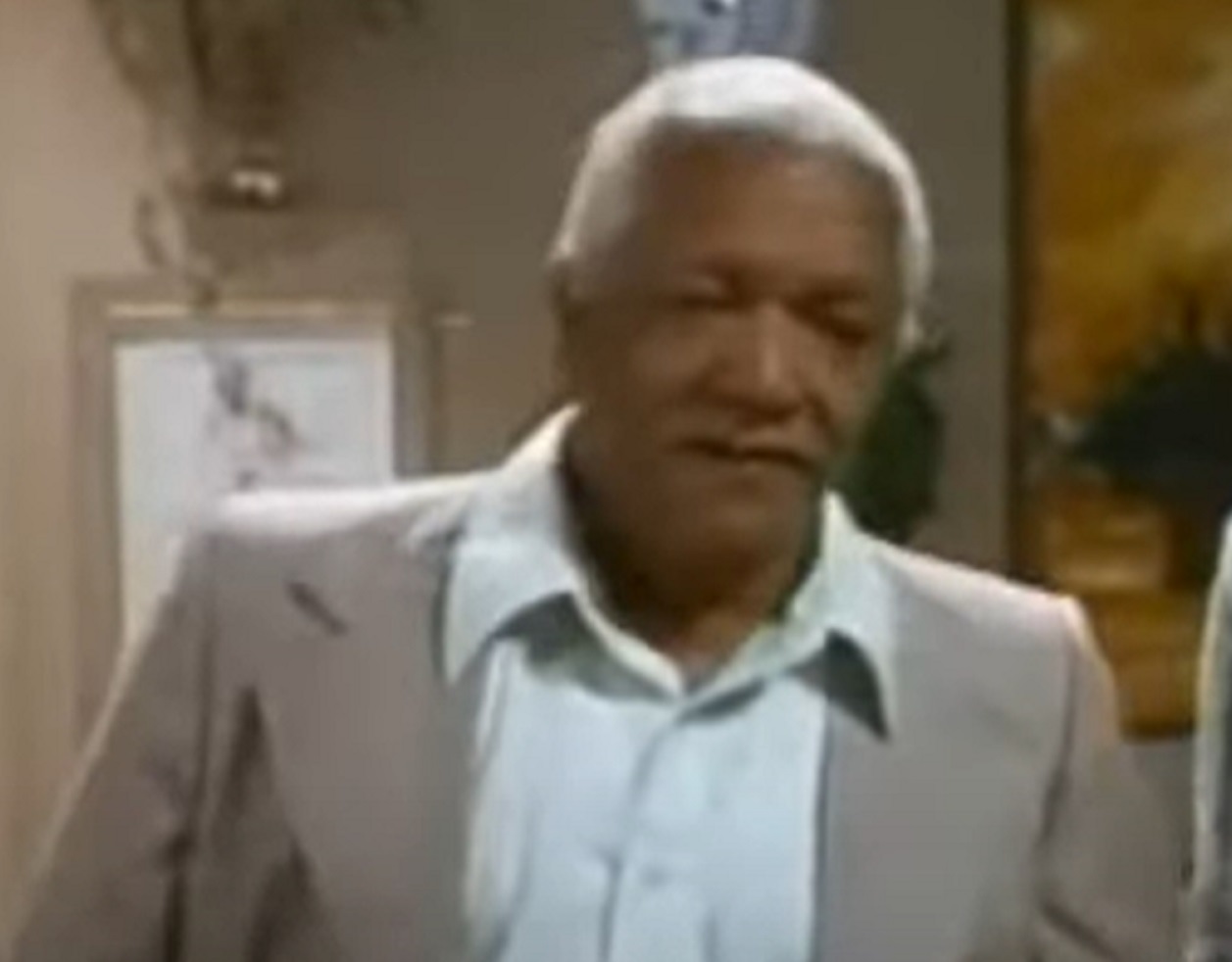 MGM, Norman... Is That You? (1976)
MGM, Norman... Is That You? (1976)
41. He Married For The Third Time
In 1976, Foxx married Joi Yun Chi Chun, a Korean cocktail waitress 20 years his junior. Their union was tumultuous to say the least, with Foxx objecting to the amount of Korean culture suddenly in his home and diet. He attempted to get Chun to stop serving her native dishes. “If I can give up neckbones and black-eyed peas, Joi can give up Kimchi". It wasn’t long before both partners had no appetite for their marriage.
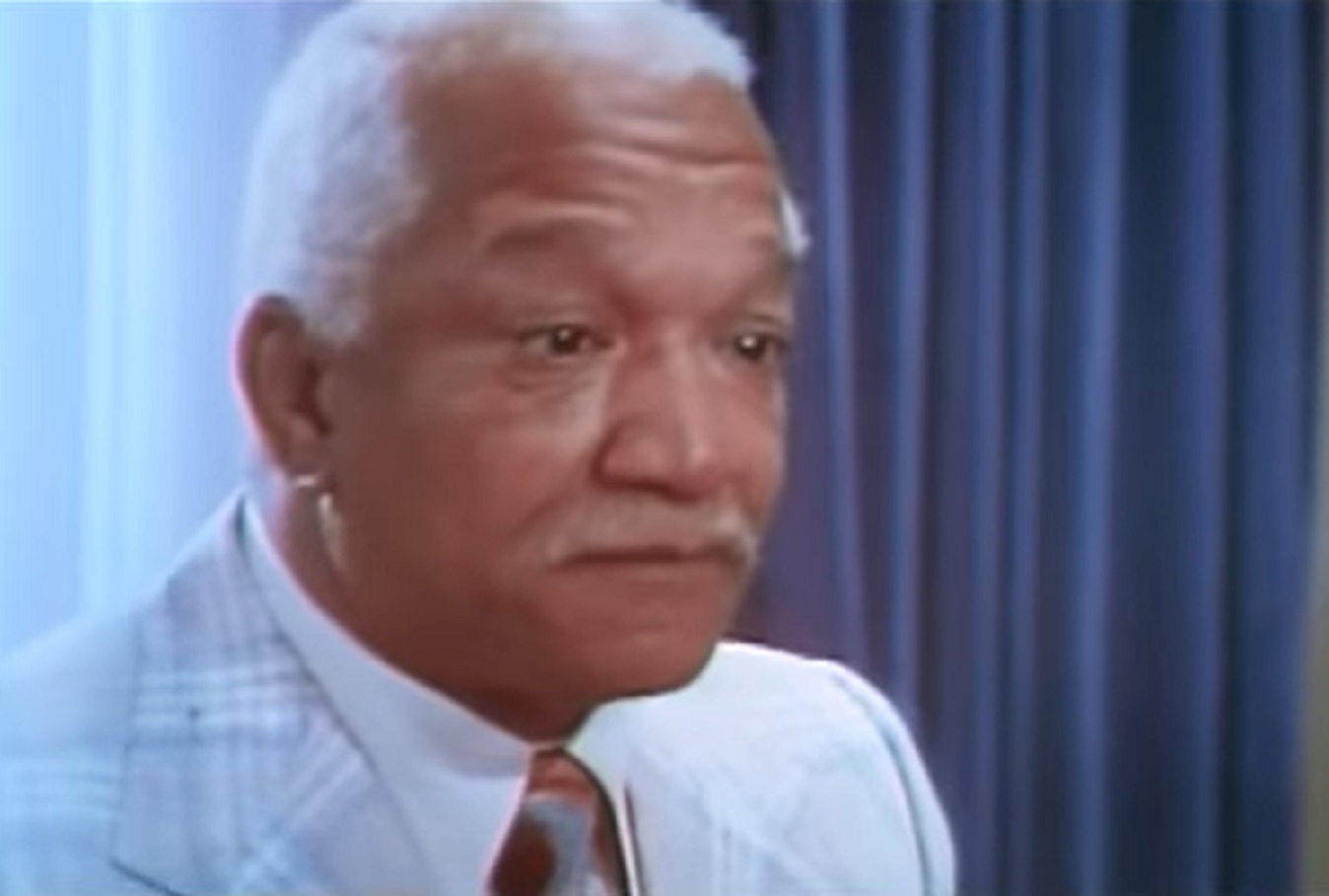 MGM, Norman... Is That You? (1976)
MGM, Norman... Is That You? (1976)
42. He Was Back In Divorce Court
The marriage lasted less than three years, with Foxx filing for divorce in 1979. Chun responded with her own divorce suit, alleging Foxx had hit her with a gun. The acrimony and lawyers bills piled up until finally, three years later, a decision was handed down. It was an arrangement that neither Foxx or his bank account would like.
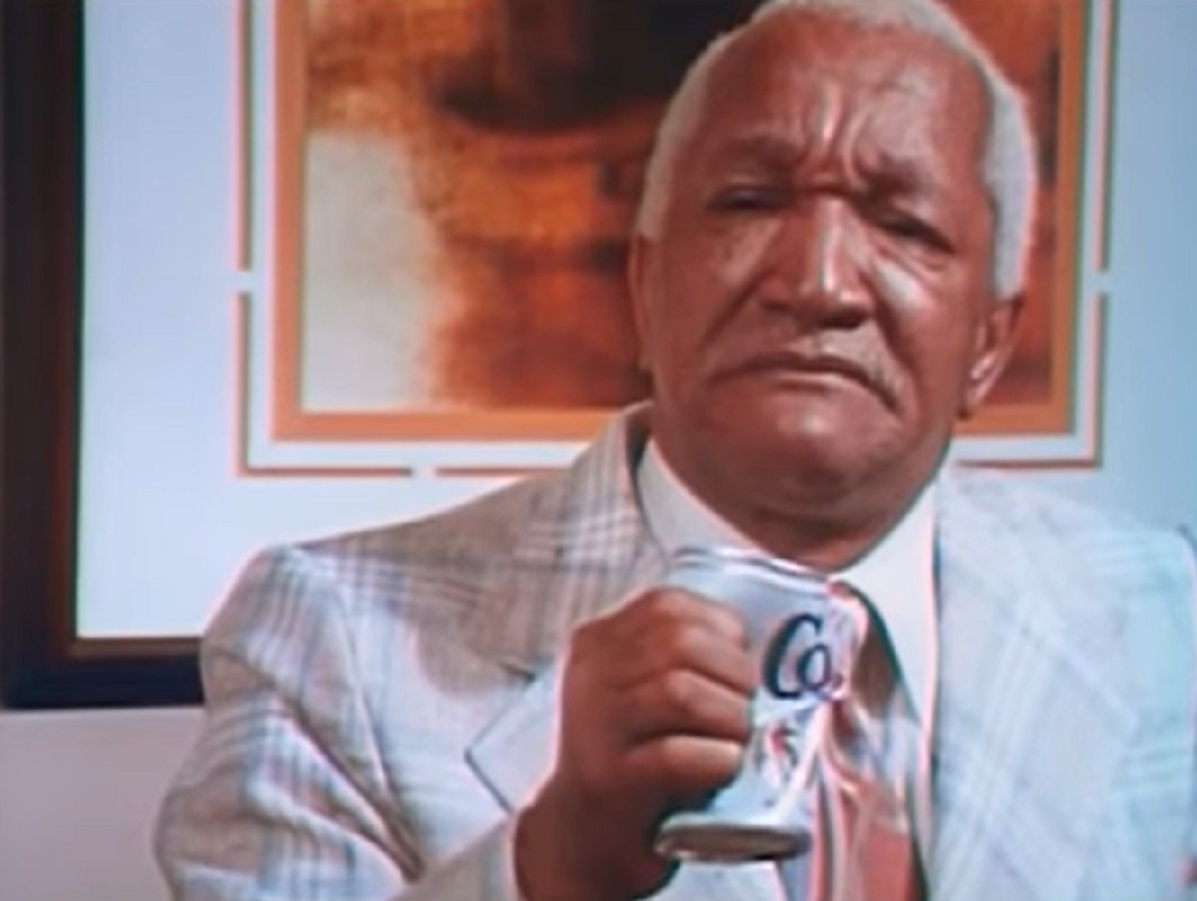 MGM, Norman... Is That You? (1976)
MGM, Norman... Is That You? (1976)
43. He Swore Off Marriage For Good
After a debilitating $300,000 divorce settlement, plus untold thousands in legal fees, Foxx was single once more—decidedly bitter about marriage. “I’ve been married three times and I’m out. I’d rather have kids, because when I give up all this money on divorce, it should go to the children and not some guy".
He was done with Chun, but he was far from free. The Internal Revenue Service now had him in their sights.
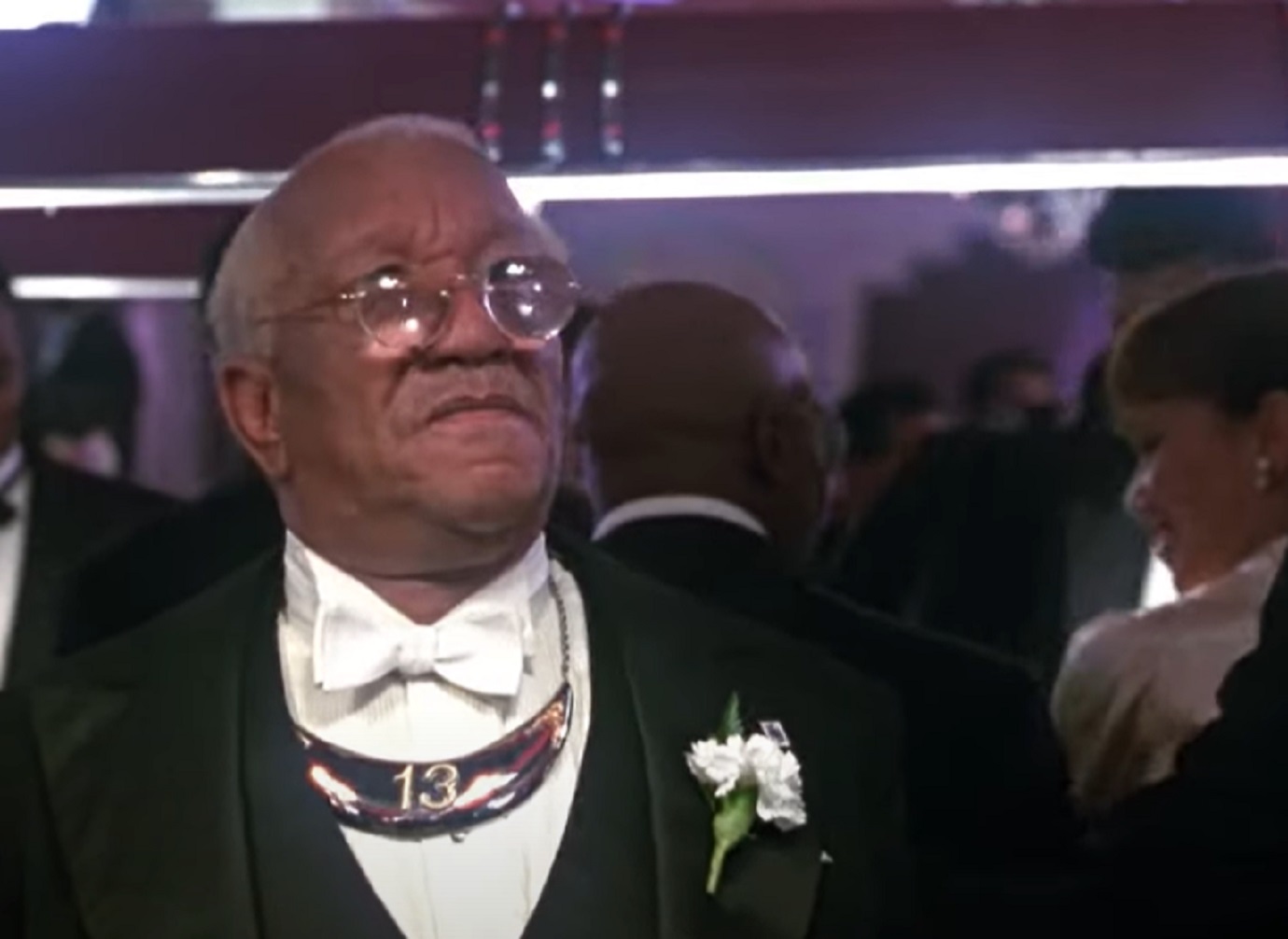 Paramount, Harlem Nights (1989)
Paramount, Harlem Nights (1989)
44. He Was Crippled By Alimony
In the late 70s, as a result of punishing divorce settlements, alimony payments to his second and third wives, and generally bad financial management, Foxx was swimming in debt. Although at one point he was earning $4 million a year, his lavish lifestyle and marital responsibilities left him firmly in the red.
He scrambled to parlay his success as Fred Sanford into another money-making proposition. But it just wasn’t in the cards.
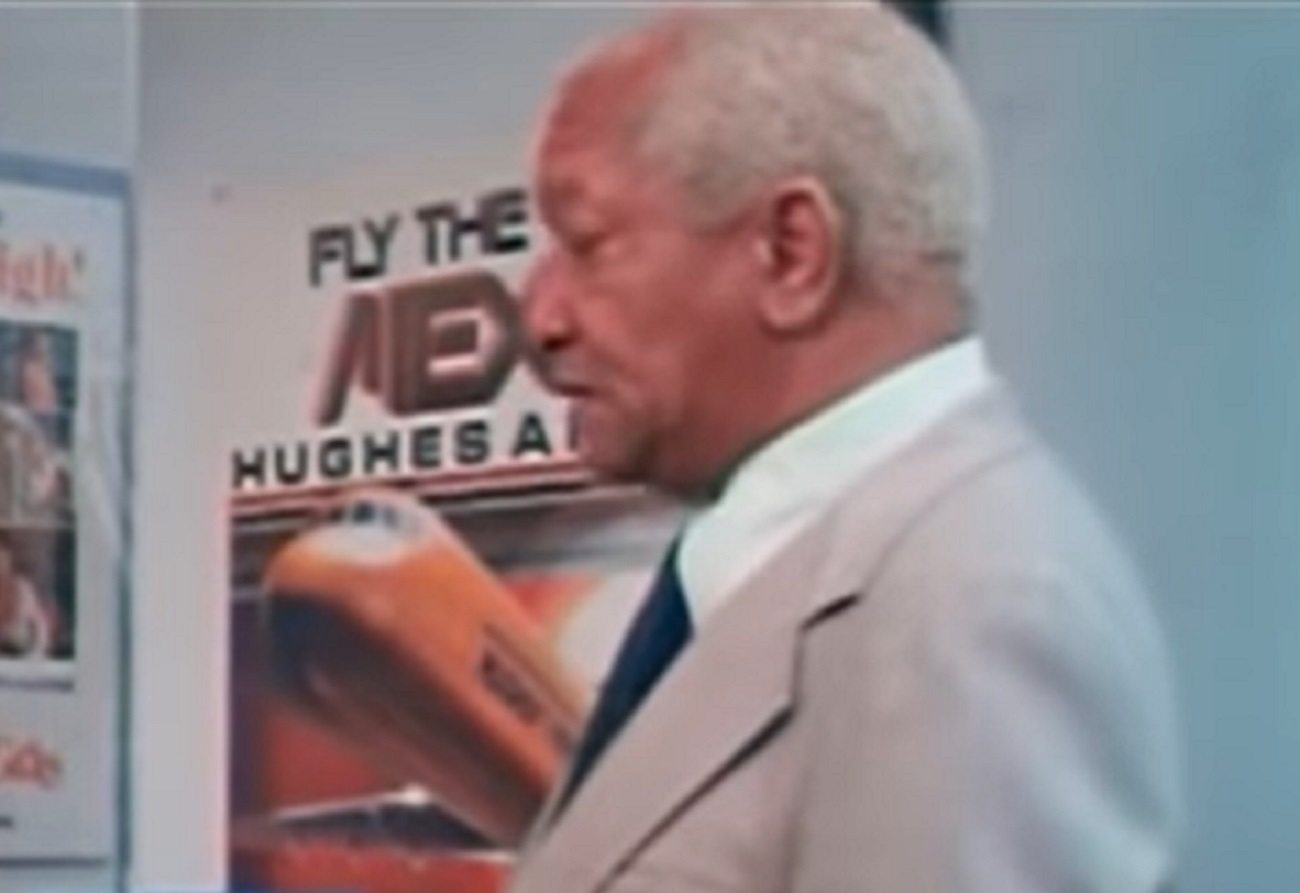 MGM, Norman... Is That You? (1976)
MGM, Norman... Is That You? (1976)
45. He Had A Series Of Flops
The next few years had Foxx gamely launching iteration after iteration of variety shows and sitcoms that, for the most part, never really caught on. The Redd Foxx Comedy Hour, was followed by The Redd Foxx Show and finally a reprise of his Junkman character in the half-hour sitcom, Sanford.
None of these lasted longer than a single season. The IRS were on his heels and he was still hemorrhaging cash.
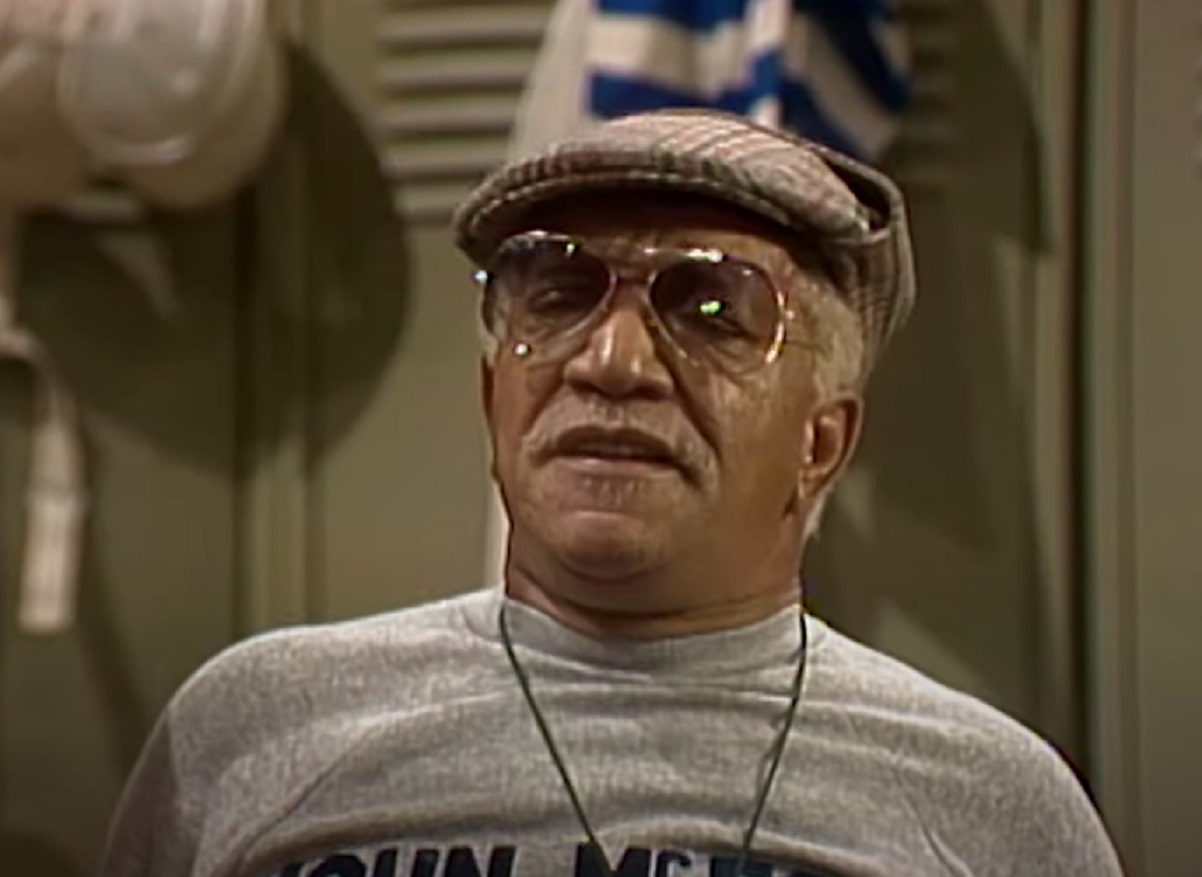 Lorimar, The Redd Foxx Show (1986)
Lorimar, The Redd Foxx Show (1986)
46. He Went Back To Vegas
Still in demand as a headlining comic and running out of options in television, Foxx returned to Vegas. But even here, the wheels appeared to be coming off. Foxx was scheduled to do a 3 am show one night and when he arrived, an hour late, most of the annoyed audience had left.
The orchestra played him on with his usual theme but Foxx allegedly took one look at the meager crowd and left the stage, the orchestra dutifully playing his exit music
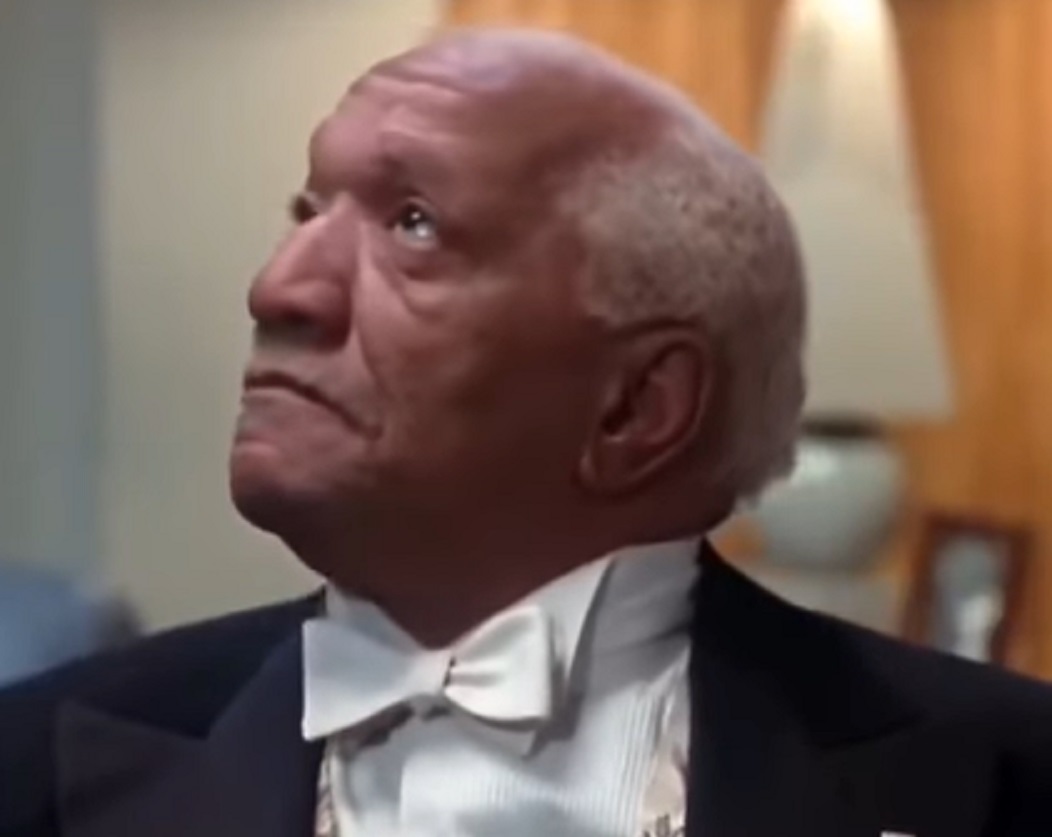 Paramount, Harlem Nights (1989)
Paramount, Harlem Nights (1989)
47. He Declared Bankruptcy
In 1983, with the IRS breathing down his neck for the $2.5 million owed in back taxes, Foxx sought bankruptcy protection. Unfortunately it was too little too late. On November 28, 1989 IRS agents seized his Las Vegas home, seven luxury vehicles, over $12,000 in cash and an entire armory of weaponry.
All that they left, reportedly, was the bed. And yet, the indomitable Redd Foxx had life in him yet…even love.
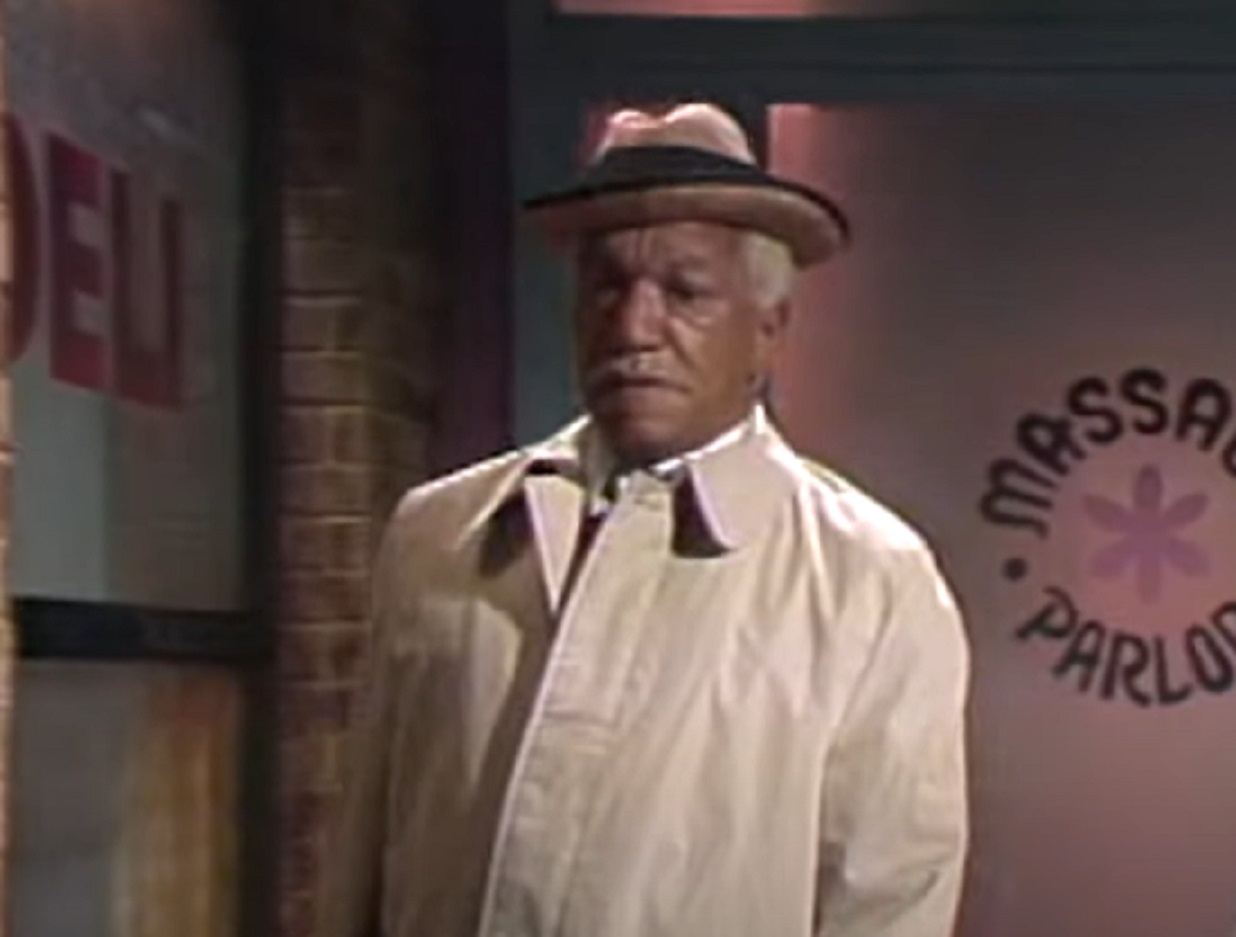 Lorimar, The Redd Foxx Show (1986)
Lorimar, The Redd Foxx Show (1986)
48. He Married One More Time
In 1991, still reeling from his tax beating and hanging on by a financial thread, Foxx, apparently suffering from amnesia, married one final time. Although he had previously sworn off marriage, he said he wed his new wife, Kaho Cho, because she was not interested in his financial status. "She saw me with a nickel. And hopefully, she will see me with a dollar.”
As it turned out she would see much more than that.
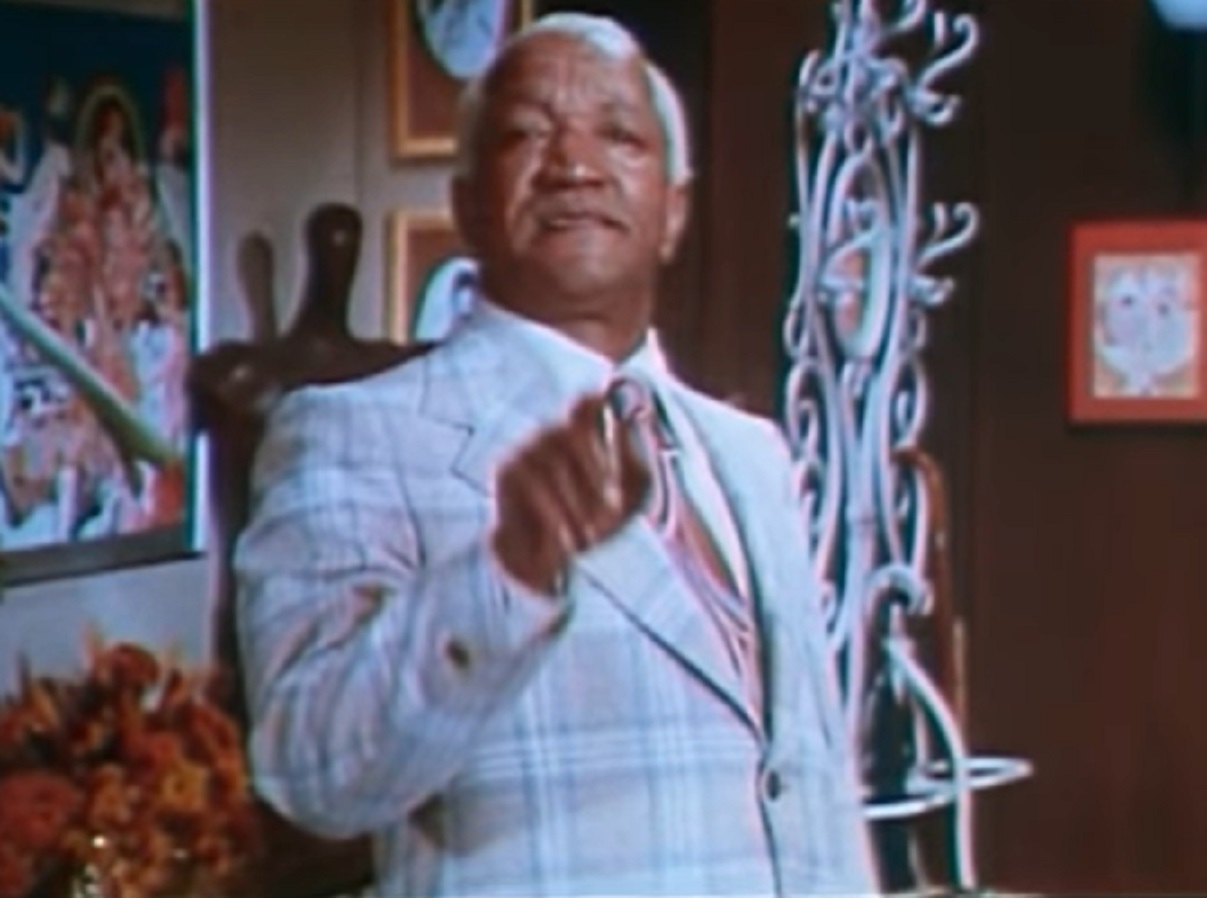 MGM, Norman... Is That You? (1976)
MGM, Norman... Is That You? (1976)
49. He Had A Last Kick At The Can
The same year he was married, Foxx was starring in another TV series, The Royal Family. Ratings were good and it seemed like this might be the vehicle to turn his life around. But while rehearsing a scene, Foxx grabbed his chest and fell to the ground. Ironically, those around him thought he was doing a comedic bit from his days as Fred Sanford. By the time they realized he wasn’t, it was too late.
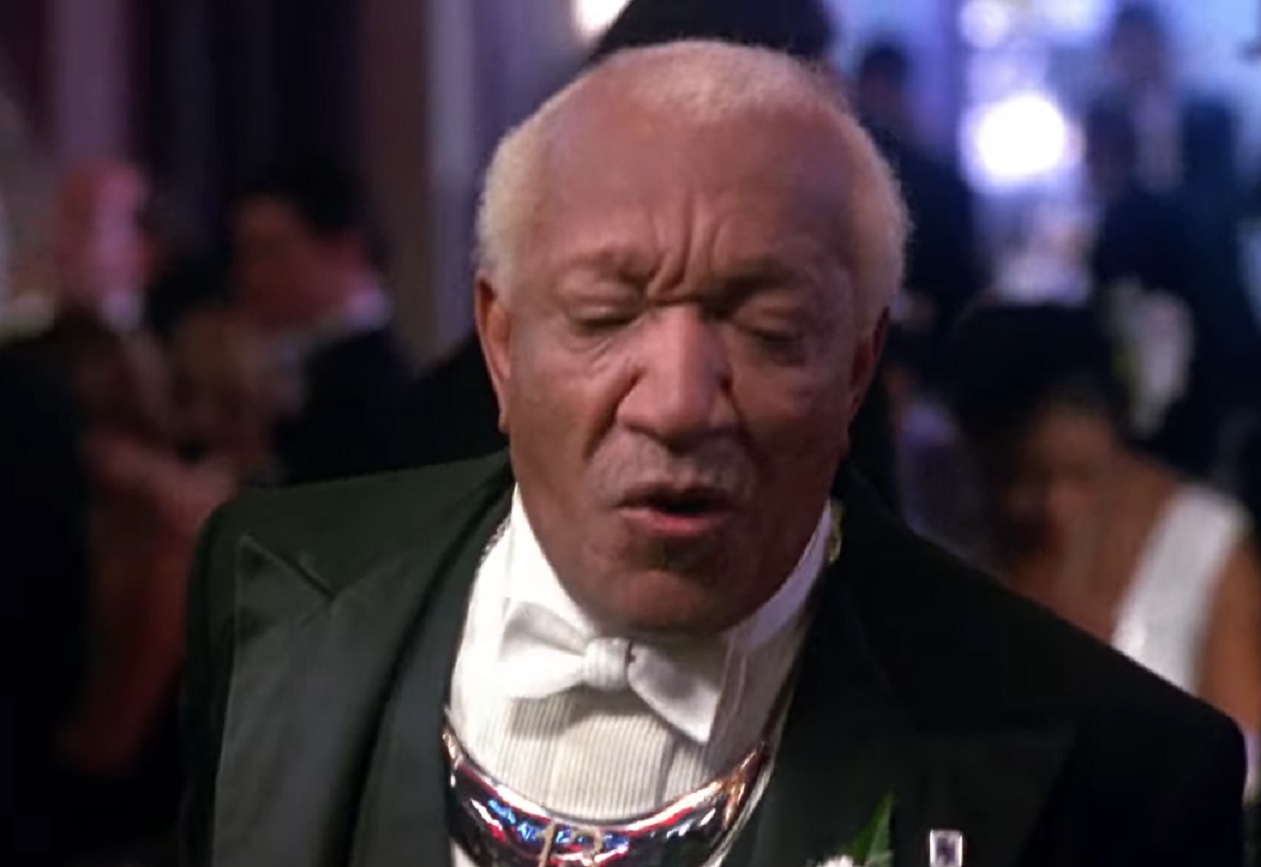 Paramount, Harlem Nights (1989)
Paramount, Harlem Nights (1989)
50. He Made A Truly Ironic Exit
Della Reese, Foxx’s longtime friend and co-star on The Royal Family, held him in her arms on the floor as Foxx gasped "Get my wife". An ambulance rushed him to a nearby Medical Centre but to no avail. Foxx passed from a massive heart attack on October 11, 1991.
Eddie Murphy, one of the many comics Foxx had helped in his lifetime, paid for a lavish send-off for the broke comic. The guest list for the funeral was a veritable Who’s Who of the comedy world.

